#this is a sitcom plot at this point op
Explore tagged Tumblr posts
Note
pretty pleeeease tell me more about this and your ideas for a pjo show directed by you? 🥺💚💚
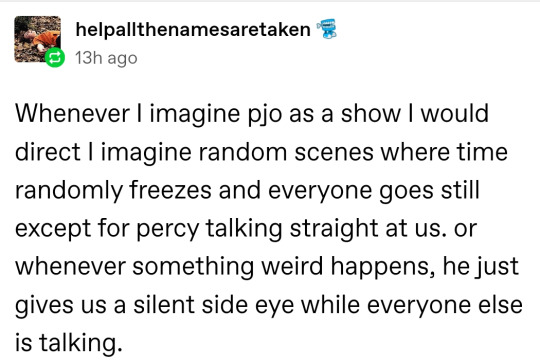
of courseee thanks for asking! most of the points were covered in OP's post but your ask has given me an opportunity to think more about it and expand it more so thanks again!!
(disclaimer: this is really long and I also wanted to say pjotv is a really good piece of cinema even though rick had no experience in film at all and if anyone doesn't agree about anything, don't be mean about it!!)
I mourned the breaking of the fourth wall in pjotv. when rick mentioned that the writing team were thinking of new ways to show percy's internal narration, I expected a LOT of fourth wall breaking. here is a few low effort doodles on how fourth wall breaking could work because I don't have coherent thoughts on describing it in words
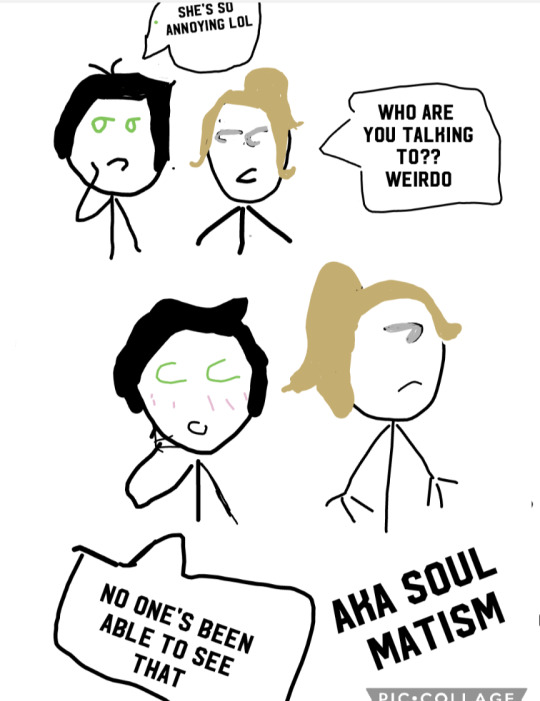
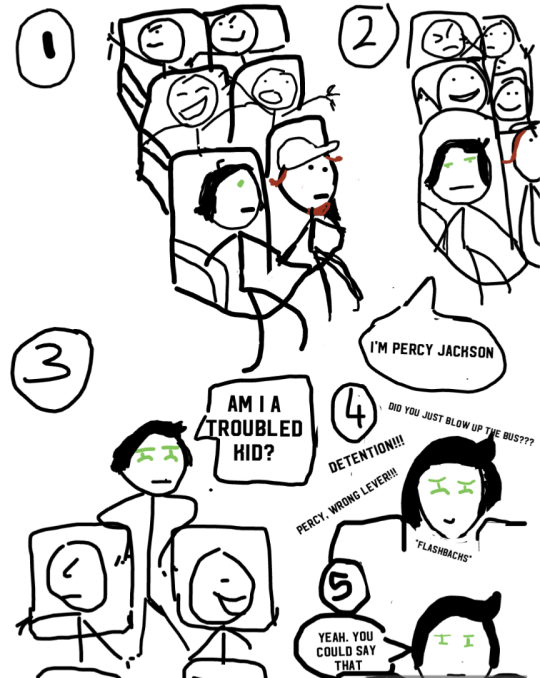
When it comes to animation, ugh there are so much things I could say. imagine the funky expressions. Imagine the potential for it to look stunning like the animation for arcane and into the spiderverse. imagine the awards it could get for best animation.
Or i really really LOVE those little animations within live action like how the autumn leaves fly around Nick and charlie in heartstopper and it'd be really cute in pjo with,,like blue hearts from percy and grey hearts from annabeth ugh <3
I'm sure lot of people wouldn't agree but I felt there was wayy less of platonic percabeth in pjo tv s1. a lot of it was deep like all the sacrifices and all the romantic stares which everyone keeps making edits of and whatever. but there was no chance to show their proper development as friends. so in my pjotv there's mostly only platonic percabeth with the little sprinkle of hints of having a crush like how it is in the book.
There's full room for the show makers to do this in the coming seasons, but I love the idea of the characters starting out with a light palette (pale blues/greens for percy, for example) and then getting progressively darker and darker in colour (blacks/dark blues) throughout the seasons, because I love a good story told through fashion <3
No other changes to the plot except extra scenes for character development (sally/Poseidon/lil percy flashbacks), new character nuances (medusa/annabeth parallels aka the most genius thing to come out of pjotv).
speaking on the humour, I would trash seriousness and just give pjo lot of the elements of a sitcom. like you know how sometimes in between sitcoms they have little interviews where they reflect on what they're doing like
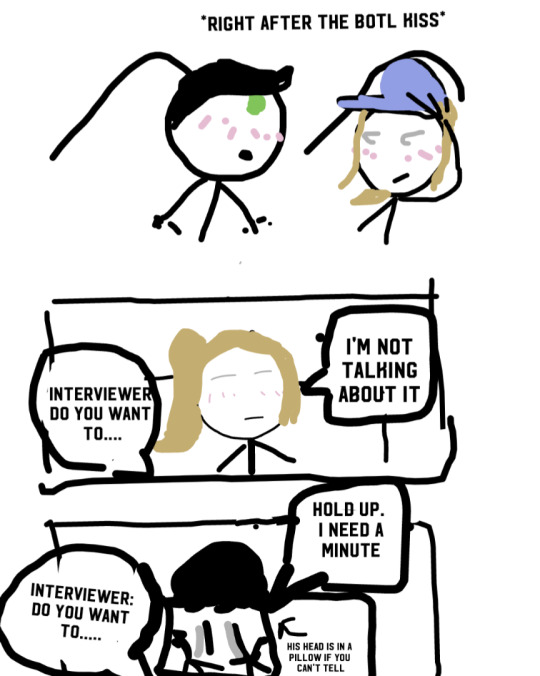
this also helps the internal narration aspect. bonus points if rick is the off screen interviewer
of course if it was animated, walker and leah could voice act, but it'd be weird for a black girl to voice a blonde white girl. but i really do love mixed canon annabeth and percy so the animated version of them would be annabeth with tinted blonde hair and well if you really like blonde percy we can have his blonde roots showing BUT ONLY IF WALKER AND LEAH ARE VOICE ACTING
THEME SONG!!! a banger with a silly montage that will send nostalgic memories rushing through your brain and make you sing along even after 10 years because ITS SUCH A CORE MEMORY
I don't know if you know the tlt musical but I would definitely make the campfire song from that as the pjotv campfire song and little good kid instrumentals here and there
also I forgot to mention you're the screenwriter because I really liked your screenplay that you posted
if you read this till the end, finley, honestly???congratulations!!
#thanks once again for the ask!!#Had so much fun answering this and drawing the little doodle#percy jackson#pjotv#I cooked#percy jackson tv show#percabeth#percabeth fanart#pjo hoo toa#percy jackson disney#pjo series#pjo#pjo musical#pjo fandom#annabeth chase#percy jackon and the olympians#riordanverse#heroes of olympus#pjo disney+#walker scobell#leah sava jeffries#tlt musical#the lightning thief musical
54 notes
·
View notes
Text
The death of critical thinking that I see in takes about the ATLA live action. I personally don’t care about it and I’m not going to hate on it but I need people to understand that yes you can like it but other people can also be upset.
I’m not going to tag OP as I didn’t want to start an arguement but as a lover of “bad” media, someone who grew up on CW adaptations of favourite characters and a professional nitpicker who finds joy in critical analysis of my favourite shows I can say that this take boils my blood (prefer for a rant that might not be coherent bc I’m ill) :
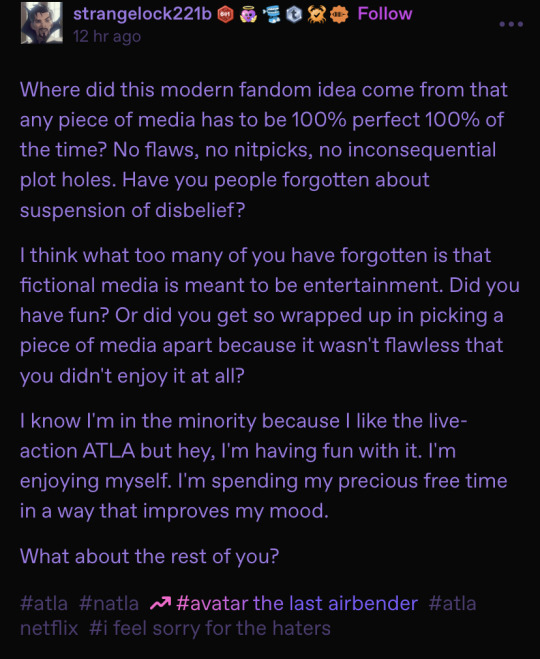
Shows don’t have to be perfect, they can be flawed but:
1) they should aim to be good - The difference here is that sad money grab adaptations like live action Avatar have the capability to aim for good and just don’t try. People are upset bc they believe (right or wrong) that the show has missed the point of ATLA. That it has major structural flaws (pacing, characters, themes, etc). These aren’t just little ‘oops didn’t get that perfect’ things these criticisms are pointing to there being an issue with the creative team’s intent, understanding and skill at adapting the series.
(The original creators of the animated series left for as far as I am aware undisclosed creative issues but I think we can see that at some point this project was capable of being what people wished for.)
The source material is well loved and while live action has its limits it has the blueprints to be a hit. It just missed.
A beloved show already exists, the live action failed bc it didn’t understand it- why did it change KEY POINTS such as character’s personality? People are upset about specific LARGE changes. Not little nitpicks.
2) Yes shows are entertainment but they are also art - they are meant to say something not just be a cheap laugh. The original had deep messaging. Every comedy, sitcom, drama whatever says something. The shows that last have something that touches the audience. Even cheesey romcoms make the audience care, even if it’s as simple as love.
Can we stop with these ‘maybe the curtain is just blue’ takes!
Dude I love supernatural, I can enjoy a show that has some big flaws. But the difference is that one is an original story with some fucked plot holes and the other is based on an established media that is viewed as almost perfect (the og isn’t perfect, nothing can be).

I don’t think you know what suspension of disbelief is. We suspend our disbelief to believe in bending and avatars and sky bison and penguin sledding. Not to excuse bad characterisation
This for me isn’t about the show. I don’t care but I think takes like this where it encourages you to abandon critical thinking are the worst thing about fandom.
Go and enjoy the show. I’m sure it is fun. Im sure you can find so many lovely new takes on characters. Im sure there’s stuff that builds on the original and makes it better.
But never tell people not to nitpick. Not to criticise. Not to question if the creators understood the text correctly.
I promise Netflix won’t be hurt if people say it’s not good enough and they’d rather just watch the original.
(I don’t know why everything needs a live action adaptation anyway)
4 notes
·
View notes
Text
Prep and Landing Retrospective: Original Special and Operation: Secret Santa (Comission for WeirdKev27)
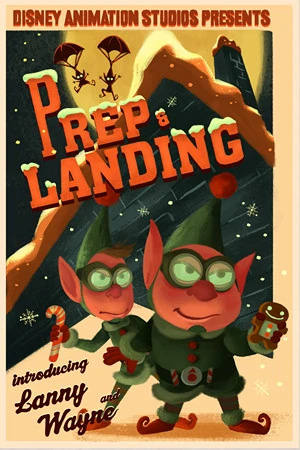
Ho ho ho all you happy people! Christmas continues on this blog and while I wait to do christmas with my dad, i’ts time for another stocking full of good cheer. This time it’s another commission from friend of the blog kev and for a short and sweet look at a short and sweet franchise: Prep and Landing
Prep and Landing has a clever premise I utterly adore: it follows the titular group, a special ops group of elves whose job it is to prep things so santa can land safetly and without being seen. They have ornaments made of knockout dust, grappling candy canes and a little gingerbread man that tells them what creatures are stirring, and set up a special landing strip so santa knows which house to hit. It’s a wonderful twist on Santa and this premise rightfully got expanded on in a total of four works: a half hour special setting things up, a 7 minute special clearly made to fill in the gaps when Charlie Brown Christmas or something else that went over half an hour was aired, an 8 page comic story about them prepping earth’s mightiest mansion for earth’s mightieist christmas, and finally one final short. At the time of this writing there seem to be no plans to bring the franchise back, which is weird given both Disney+ is ravenous desire for content and love of bringing back old animated properties instead of expanding current ones or you know.. giving shows spinoffs HINT HINT, and the fact this is a solid premise. It could easily be rebooted or revived as a full film or a series to release around novemeber and december.
SO i’ll be taking a two part look at the franchise: one of the shorter works paired with one of the specials. So come under the missle-cut with me as we unwrap these shorts and see if they stuck the landing the first time around or ran into some turbulence.
Prep and Landing: The original special follows Wayne, an elf who outlines the job in a beautiful opening sequence... before it’s shown he’s been doing this for hundreds of years and has burnt out. Going through the motions, even if the motions change slightly as society changes, hundreds and hundreds of times, going through partner, after partner, after parnter and watching them either move on to better jobs or get their own partners.. it’d get tiring. You have to realize Wayne isn’t someone like thor, dealing with senses shattering threats like mangogs, frost giants and sibling rivalry. He’s just a guy doing his job, has done for centuries and simply wants to move on. I’d also just like to mention Wayne is played by David Foley, canadian wunderkind from the sitcom news radio. He’s not a PERFECT fit for a jaded washout honestly, i’d of gone with brad garret or sometone a bit more grumbly, but he still does his best and I still like seeing him pop up.
So naturally the next christmas he parades around, celebrates having head of nice list intellegence in the bag and totally won’t find out he didn’t get the job oh wait no never mind he didn’t and he’s bummed the fuck out.
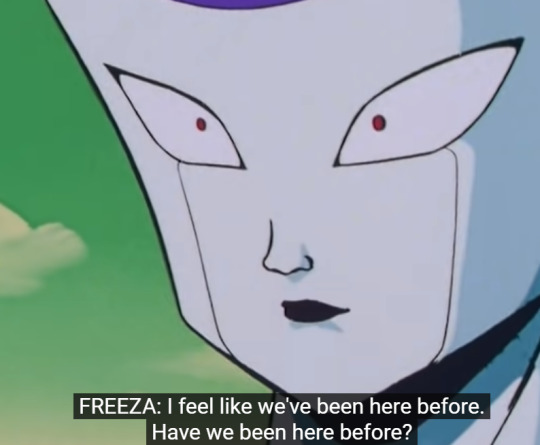
Yeah this is easily the thing that holds the special back. This old chesnut. Part of it is that i’ve seen this so many fucking times. Now seeing something a LOT dosen’t really bother me. Enemies to lovers, a grumpy person coupled with an energetic one, a hero learning the life of adventureing isn’t as easy as it looks or sound and having to come to terms with that and what they really want, ski trips, evil clones, parallels between the hero and villian, journeys into a characters mind.. i’ve seen all these a lot, some more than others. But I likes em. But some tropes just wear on you after seeing them oh so many times. Will They Or Won’t They can eat my entire ass at this point. And so can this trope: it CAN work, but it’s been used so many fucking times, in sitcoms, animation and i’m sure even all the way back to the glory days of radio, that you NEED to tweak it or it just annoys me. Soul for instance used a similar plot: our hero wants this big job playing jazz, and has built it up as his reason for living.
The other reason we’ll get to as Wayne grumpily heads out with his new partner, overenthuastic rookie Lanny to do the job. He proptly decides fuck it, leaves all the work to Lanny and sits on his ass and eats cookies, as would I if I got passed over for a promotion with no explination. Lanny minorly screws up, cutting up part of a tree, but mostly does okay and it’s Wayne who ends up caught by Timmy, the young boy living at the house. Lanny covers for him quickly.. but we then get to the part that really sinks the special slightly: the way Wayne’s burnout is treated. While him doing nothing and goofing off is objectively not great, and some of the jokes during this part are funny like him using a santa cookie as an outlet for his anger at the big man himself, taunting him by not turning on christmas specials for long and then biting his head off, the problem is Lanny and Magee kinda overblow his actions. He slacked off once in hundreds of years and got caught. He’s a bit of a dick sure, and he needs to learn a lesson.. but being mad because he dosen’t ENJOY the job after doing it hundreds of years is just as douchey. Lanny I give a pass to, he dosen’t realize how burnt out Wayne is and still gets why the jobs important (getting presents to deserving kids and making their christmas for them), but Magee (santa’s mission control woman and wayne’s superior) knows wayne. Apparently she dated him breifly according to suplimentals. Their old friends.. and she acts like he’s bein gthe biggest fucker in the world.. when she TOLD HIM HE DIDN’T GET THE JOB TO HIS FACE. Lanny dosen’t have any context for why Wayne’s acting this way, I get him being outraged and I get her being pissed, he is slacking off. But she shoudl damn well know WHY he’s being an ass and actually talk to him instead of essentially shouting SNAP OUT OF IT ASSHOLE. I mean he should snap out of it asshole but his problems run deepr.
Wayne does snap out of it though when he realizes that due to not being done already and a heavy snowstorm, they may have to cancel and realizing why he did this job in the first place, Wayne rallies, convincing Santa to turn around (something he does because of course he does he’s santa. He’s the purest soul around next to jesus and superman), and getting help from a giddy Lanny, happy his hero is actually everything he thought he was. They can’t get the landing strips out, but Wayne improvises, using some decorations Lanny spotted earlier, an excellent chekovs gun, and the skis they have on their boots, because of course, to make an impromptu lander. Santa gets there in time, christmas is saved, and our hero learned a lesson.
Santa himself.. is throughly likeable. While he SHOULD have told Wayne about getting passed over unlike the others, he takes Wayne’s breakdown in stride, pointing out everyone dips into being naughy once in a while, even offering him the promotion which he of course turns down to work with lanny. But still it shows that while Santa REALLY needs to learn how to email his employees, he’s a good hearted man: he didn’t gave wayne the promotion right away not to be a dick, but because he wanted to remind him why he did his orignial job, as well as train a worthy successor.
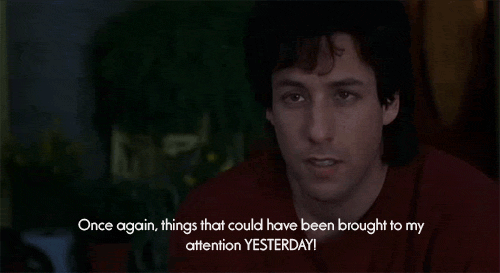
But still understandable. It’s also REALLY hard to get mad at santa honestly. I wanted to but unless the version of him is REALLY a huge dick, it’s hard to get mad at the guy. Again he’s as nice as superman, jesus and superjesus, an alternate superman whose also jesus.
Final Thoughts on P and L: This special is not bad but a I pointed out it has issues: the plot of a jaded elf learning his job matters isn’t bad, the execution is just spoiled eggnog. Tastes bad, gives you indjestiion, and ruins something great. The rest of the short is fine with clever bits of world buildnig, from fun holiday puns to things I didn’t really get to mention in the review proper: the reindeer who are pumped up loveable bros wearing skin masks that look like lucha masks and are a delight, and the coal elves, elves whose job is to deliver coal to naughty kids. The world here is REALLY expertly built and clever, down to the door to santa’s office having a smaller door built in for the elves since he towers over them, it just needed a better plot to go with it. Still it’s not a terrible one, and it’s enjoyable enough.. I just feel there are far better holiday specials that deal with this sort of christmas burnout way better.. one of whom we’ll see in a few weeks.
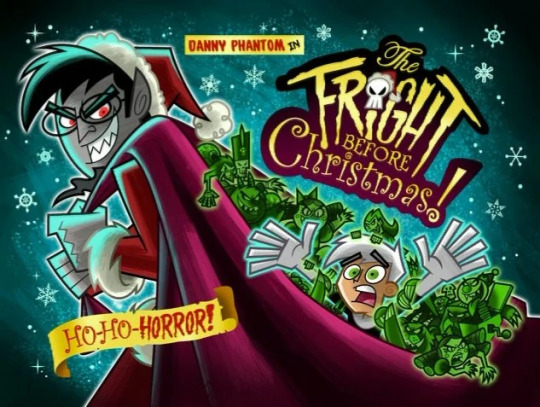
And honestly i’m only one christmas in and i’ve already covered way worse, wether it was the post apocalyptic sitcom Whoops!, or the star vs christmas episode where Tom got yelled at and called a bad boyfriend for respecting what his girlfriend actually wanted while Marco got treated heroically for being a selfish dick trying to impress his best friends girlfriend. And that’s not even GETTING into things i’ll probably cover at some point like that time Hank Hill was booed for not wanting a woman to die in his house, the time EVERYONE in Jenny Wakeman’s life except her stalker assumed the worst of her or this monstrosity

Not the best but FAR from the worst
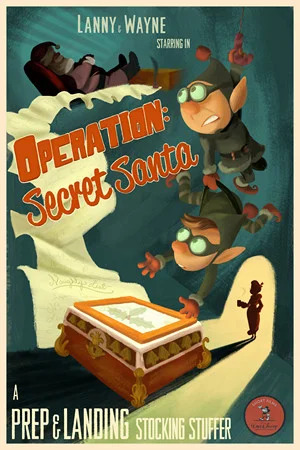
Operation: Secret Santa
Now THIS is more like it. Since this one’s easy enough to wedge inbetween other holiday content, being only about 7 minutes, i’ve saw this one pop up far more often before I cut the cord. And it’s really the franchise given i’ts proper due: it’s a simple short plot but a great one.
This time around the boys are giving a top secret mission by the big woman herslef, Mrs. Claus, played by betty fucking white everybody!
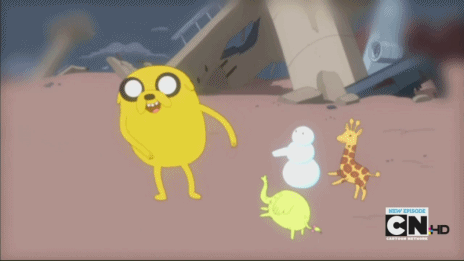
The woman’s career should speak for itself.. but it also shoudln’t have to: vetran of both the Mary Tyler Moore Show and The Golden Girls, Betty hasn’t ever stopped working much like her friend and former coworker the late great ed asner. She did have a big career revivial around this time, getting yet another sitcom in Hot in Cleavland and a big roll in the Proposal, that she got to host SNL. Bout damn time.
So she’s naturally a good fit as Mrs. Claus who wants the boys to steal a box from Santa’s office. Wayne of course takes this in stride, clearly knowing Santa’s marriage is stable and thus whatever she’s asking, it’s legit. So this time around it’s Lanny whose the liablity as his sheer terror of santa exiling them over this makes him freeze up. The rest of it is simply a fun caper as our heroes have to manuver around santa during the ten minute nap he takes (as he’s so busy the rest of the time around the holidays, he never leaves the office), around three, and even visit his personal workshop/man cave. No really Mrs. Claus flat out admits it’s the stuff she simply dosen’t want in her house (she left them recordings to walk them through it), as well as where he works on his pet projects like mechanical reindeer or robot santa.. though that one... didn’t turn out so well.
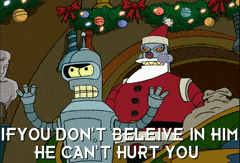
Our heroes naturally pull it off and the final stretch of it is extra aweosme as wayne uses a snowflake ninja star to hit santa’s old fashioned clock’s minute hand, turning it back JUST long enough for them to book it.
What was in the box was even MORE heartwarming: as it turns out it was a tiny wheel.. and Mrs. Claus has, after what had to be decades of work, managed to find the rest: a small wooden duck that was the first thing santa ever built.
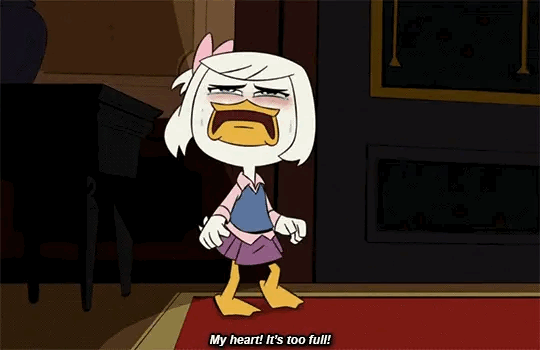
As you can tell Operatin; Secret Santa is a step up: with the premise now etched in stone, they can simply have fun with it while not trying to slap a fairly cliche plot on top. The result is an ultra fun ultra short romp that I need to start rewatching now I can every season now Disney+ exists.
So that’ sit for the first part. I’ll have part 2 in a couple of weeks, as next week , after a vegetable based interlude, we’ll be doing some DUCKS. So look forward to that and happy holidays.
If you enjoyed this review consider joining my patreon HERE> it helps keep this blog as my job and allows me to do more stuff. 5 bucks a month nets you your own GUARANTEED review of whatever half hour thing you want a month.
10 notes
·
View notes
Text
Anime round-up!
Since I’m back on holiday mode, I burnt through anime at an incredible speed. I finish one each day haha. I followed much less anime the October season than the last, only Mieruko-chan was on the menu and I picked up the Taisho romcom out of boredom. They are alright.
They are pretty similar but I like Summer’s Kuromaid better. The characters and setting are more interesting with a fantasy element and slight mystery. The flirtations are funnier over there with necessary touching and reflective moments. The Taisho romcom did make use of the titular time period and like it advertised, gives a more ‘pure’ story. Things are very rose-tinted. It was a bit, traditional fairy tale, old-fashioned day drama even - but in a heartwarming enough kill-time way.
Mieruko on the other hand, hits the passing mark but I have to knock a few points off for the excess sexy fanservice. It wasn’t like that in the original manga. You expect maybe some suggestive shots of Hana like the horror girl trope, but it distracts and i wasn’t sure i could continue three episodes in. Luckily the plot starts to pick up as it simultaneously hits your tear spot witht the famed Granny tale and Miko’s father. The scary elements are quite good though, so is the comedy. The monsters are ugly, relying on Miko’s indecision instead of jumpscare. Yulia’s misconception of Miko’s power was particularly funny. It’s off to a slow start, and perhaps not very climatic ending curtesy of the little and ongoing source material. Luckily it did not go off-track like another manga-adptation last season, Shadow House. I look forward to the rest of the story but not sure I do in anime form. Looks likely it’d get a S2. Checked out the manga in under an afternoon.
A shoutout to Uramichi Oniisan. Dark comedy about adulthood and capitalism is my jam. So, the first thing I binged is Vampire Dies in No Time. It was almost a PPT but i lauged out loud so much. Kind of pointless kind of loud, but it was a nice four hours spent.
I really looked forward to the music x battle theme of takt. op destiny before its release. After I finished it, I don’t, I don’t really know what to say. It doesn’t really make use of music itself all that much despite its speeches about how crucial it is. Regardless for its effective atmosphere and emphasis on the appreciation of music, unlimited to classical, the pacing was the biggest problem. I thought it would be all epic battles but it was a road trip but then the world’s ending??? Well, I saw the pretty people on the poster and started watching, but I clicked on the second episode and was all ??? over my head and was like ‘so it’s maho shoujo + pokemon’ but the road trip wouldn’t end and i’m like ‘is this going to stay a character-based sitcom what a waste of worldbuilidng we saw little of’ and episode 11 hits me like a truck and i’m. not quite sure how the boss’s plan world but i guess his motiviation is okay-conveyed geh. The moment I learned it was a prequel to the mobile game its mess makes a lot more sense. But I am concerned about how good a job it does for promoting the game when it’s not really about the same characters. You could even say the emotional core from the anime is not going to get their happy ending. I’m kind of used to these goodbyes so I’m ok, I just feel like, the whole thing is a bit wasted potential. So say if it’s an original anime it’d be even more disappointing. The characters and designs are charming though, so if you come for Madhouse and MAPPA’s visuals, you definitely get your money’s worth. Still worth a watch I’d say, the first nine episodes are pretty good, but better spoil yourself first. That op is a banger though. The exact mix of sensory overload and soothing.
I am not a fan of isekai but since I watched Katarina in April I’m more open to it. Realist Hero fits my expectation that it presents a simplified but plausible manual for rebuilidng a medieaval magic kingdom’s economy. The worldbuilding is surprisingly solid with interspecies/international tension and real-life conflicts like natural disasters. It wasn’t heavy on the comedy like it does with building a harlem but stay focused on the drama of revolutionizing the goverment structure. I can pretend I learnt something. Will be following this season ‘cause I have nothing better to do haha. There’s one with similar permise where the prince is trying to increase the kingdom’s value so to sell it and retire at 25. That one is more sitcom and dumb luck so let’s see.
Started Komi-san Can’t Communicate today. Love it so far. Clever use of the manga panelling and on-screen text effects. The dialogues aren’t bare. Funny and a varied and distinct cast. Look forward to finishing it.
For this season, my money’s on Sono Bisuku Dōru wa Koi wo Suru. Yeah, I don’t know why i’m making myself watch romcoms three seasons in a row. But this show is as close to made for me with a protagonisht who loves to sew and make his own dolls and an anime lover. The first episode is really pretty and smooth. I’d binge it if it’s all release haha.
Another one I had a delight in is Kuroitsu-san from the Monster Development Dpeartment. Yeah! Tokusatsu Saikou! And they featured real local heroes I couldn’t be more proud. I had a great time with Heaven Design this season last year and I only expect it to be even more up my alley with specific tropes and similar realist comedy like Uramichi Oniisan or Hataraku Saibou Black. But even more niche haha.
2 notes
·
View notes
Text
M*A*S*H: Genre and Themes
Considering the fact that M*A*S*H is a show set during the Korean War, about a mobile army surgical hospital a few miles from the front line, it seems impossible that it could be anything but a war show, albeit a dramedy centered on Armed Farces, much like the shows Hogan’s Heroes or McHale’s Navy.
And indeed, as it turns out, M*A*S*H is a war dramedy. No more, no less. This isn’t one of those times where I try to convince you otherwise.
But that doesn’t mean it’s not worth a look anyway.
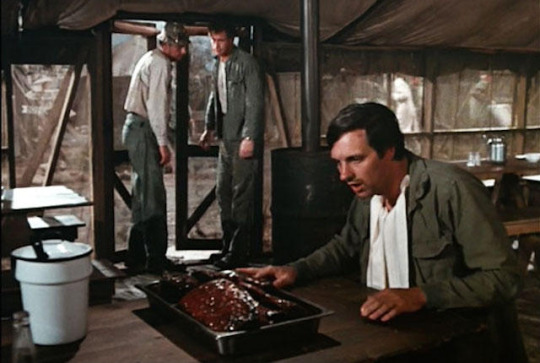
In many previous ‘genre’ articles, I’ve mentioned the basic fact that there are very few pieces of media, whether movies, shows, or books, that can be placed in only one category of genre. As I’ve pointed out, even the most apparently one-dimensional works of art contain aspects common to other genres, which makes sense. No show is created to fit in one single category, and the best examples fit into several. Although most shows are able to be categorized into one main genre, the fact is, a film or show tends to naturally carry more characteristics of one specific genre than others.
In the case of M*A*S*H, though, the melding point between the genres can be a little tricky to spot. In a show like this, picking out the ‘dominant’ genre is harder than one might think. It’s a sitcom that refused to stick to format (or a laugh track), a war show that lasted three times longer than the war it was about, and a drama that was more than capable of laughing through the tears and heartache inherent to the tragedy of the situation around them.
In other words, each individual genre of M*A*S*H ‘mashes’ together, to the point where they’re inseparable from one another.
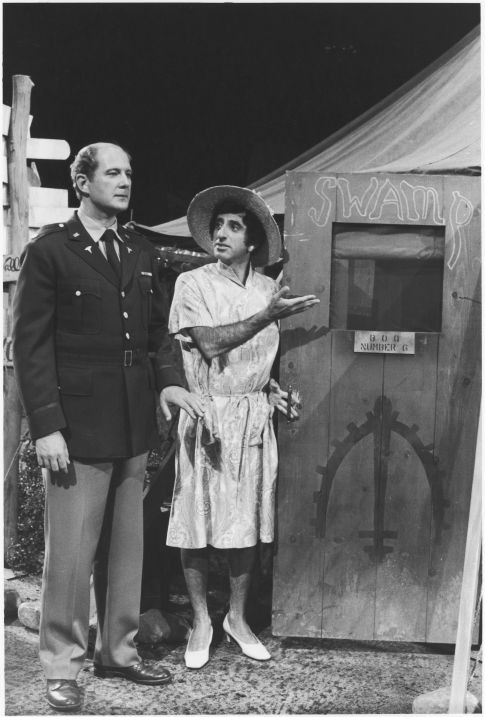
So, naturally, we’re going to see how that works. Today, we’re going to be analyzing M*A*S*H in order to dissect its use of genre, be it comedy, war, or drama, and how these all fit together to create the most iconic war sitcom of all time.
Let’s take a look, starting with the opening credits.
The opening credits of a show can say a lot about it. The theme of a television show is there for a reason, and not just so that people have time to get their snacks and sit down before the story starts, and it’s not just to list the cast and crew. No, the opening credits for any show set the stage for the show, the ‘setup’, giving the audience members a taste of what’s to come. The music choice and the decision in what clips are used is instrumental in setting up the audience’s expectations, as done in sitcoms like Growing Pains, with shots of the main family over upbeat music, or Star Trek, with an instrumental exciting theme over the Enterprise soaring through space.
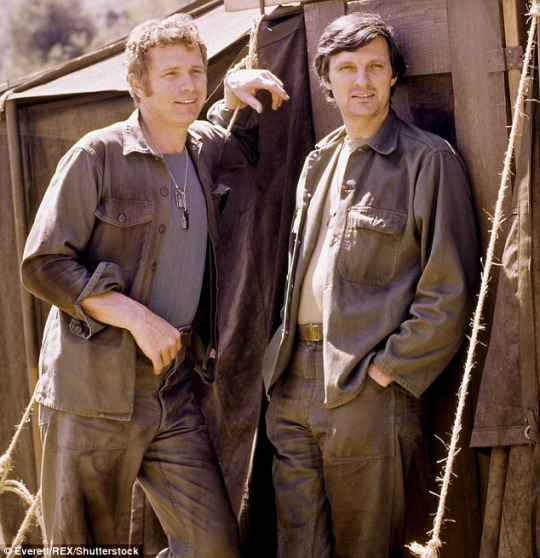
With that said, how does M*A*S*H open?
Well…not in a particularly funny way, I’ll say that much.
The music used for the opening credits for M*A*S*H is an instrumental variation of the theme used for the film: titled ‘Suicide is Painless’. While losing an edge of ‘grimness’ thanks to the lack of lyrics, the visuals accompanying it are anything but uplifting.
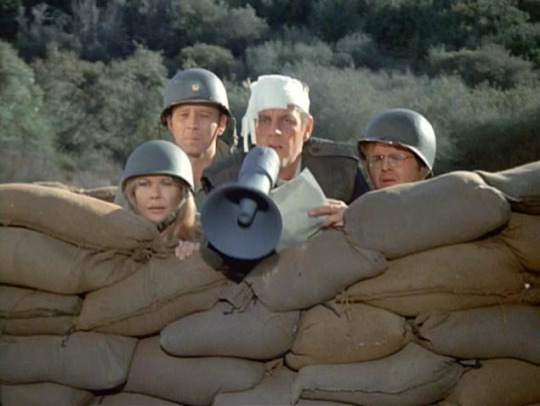
The sequence shown over the opening of each M*A*S*H episode is the same: helicopters arriving from the front with wounded. Hawkeye Pierce and (depending on the season) either Trapper McIntyre or B.J. Hunnicut approach the choppers, examining the patients, and delivering orders, taking them back down to the camp.
It’s not funny, it’s not uplifting…it’s war.
And that’s the point.
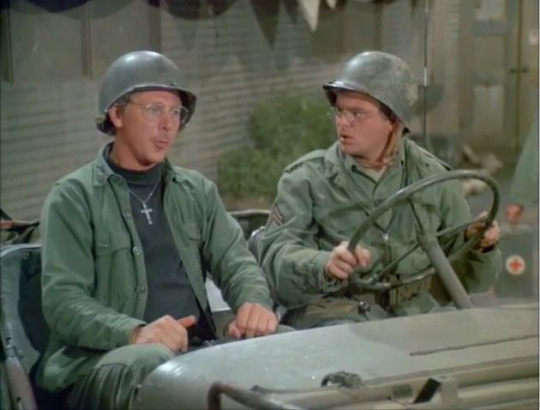
Each M*A*S*H episode opening is the demonstration of the central tone of the entire series: no matter what hijinks are going on in this episode, be they Radar learning to DJ or Klinger going for the pole-sitting record, in the end, they are in a war, and people are getting hurt, and killed, and that’s why these people are here: to stop it as best they can. The opening of each episode is the reminder of that: that these men are doctors, and for all of their insanity, in the end, they care about the patients. No jokes, no smiles, just business.
So, how does that reflect the show it belongs to?
To be honest, the opening can seem a bit incongruous with the show itself, at times. Especially in the early years.
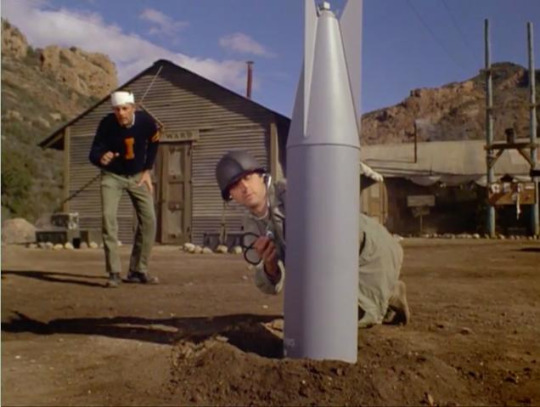
M*A*S*H is often remembered as a war sitcom, which, in all fairness, it was. It was funny. Episodes like “Adam’s Ribs”, “Yankee Doodle Doctor”, and “Captain Tuttle” are just a few in a large selection of episodes focused around making the audience (and characters) laugh. Watching B.J. and Hawkeye play a game with no rules is really entertaining, and so is watching Henry Blake’s desk get flown off in a trade for medical supplies. But what’s important to remember is, M*A*S*H was no Hogan’s Heroes.
At the end of the day, the situation, as funny as it might have been, was not ‘okay’. There was no sense of overall ‘security’ like there was in other war sitcoms: in M*A*S*H, the war took center stage.
The best example of M*A*S*H’s use of genre may be in the early episode, “Yankee Doodle Doctor”. The episode itself is pretty simple: A documentary is being made about the 4077th, which, as the staff soon discovers, is essentially war propaganda. Hawkeye and Trapper destroy the footage in existence, in order to create their own ‘film’. The movie they make is a Marx Brothers pastiche, intentionally over-the-top humorous…until the end of the episode.
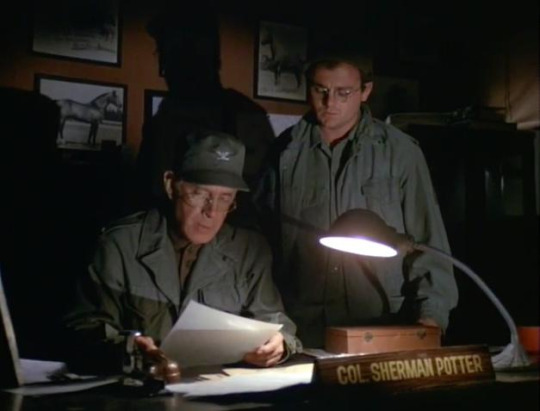
The final shot of the 4077th’s film is not a closing joke from the Groucho-esque Hawkeye Pierce. Rather, it is a monologue, delivered by Hawkeye from Post-Op:
“Three hours ago, this man was in a battle. Two hours ago, we operated on him. He’s got a 50-50 chance. We win some, we lose some. That’s what it’s all about. No promises. No guaranteed survival. No saints in surgical garb. Our willingness, our experience, our technique are not enough. Guns, and bombs, and anti-personnel mines have more power to take life than we have to preserve it. Not a very happy ending for a movie. But then, no war is a movie.”
He’s right. This isn’t a happy ending, and it’s not a funny one, either. And that is what M*A*S*H is all about.
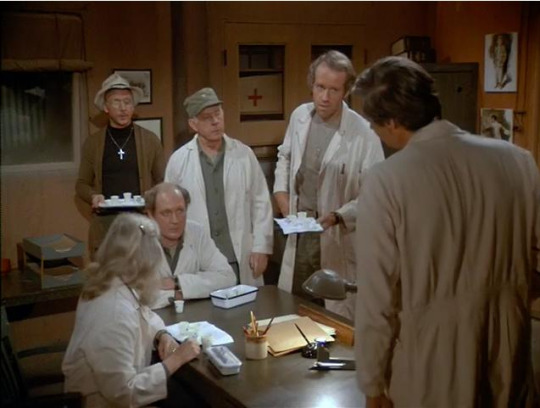
M*A*S*H was a sitcom in that it was full of characters being funny, often accompanied by the laugh-track that was part of the package of a comedy show of the time. On the other hand, the show was also a war show, constantly tackling ideas like coping with death.
Both of these are huge parts of its identity as a show, but in the end, that’s not what M*A*S*H was really about. It was about the people.
M*A*S*H may have started out as a show about a bunch of off-the-wall doctors engaging in wacky hijinks and antics, but it ended as a family struggling together to hold onto sanity in the middle of a war. As with most television shows, the characters and individual plots for M*A*S*H are directly influencing the genre it’s placed in, and as a result, it’s a little hard to pin down.
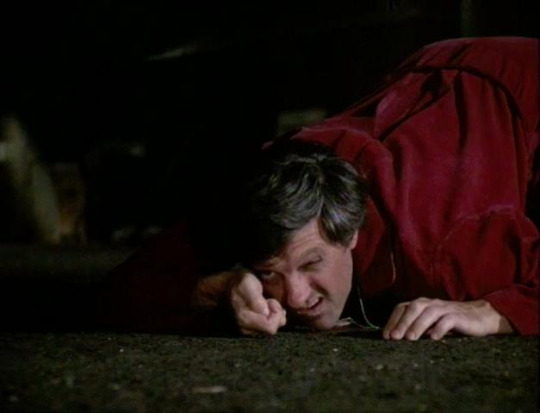
Like I said, the show is centered around the personnel in a M*A*S*H unit, and their struggle to maintain control of their lives in an uncontrollable situation. And while these episodes aren’t always realistic, or even remotely plausible, the characters feel realistic and plausible, flexible enough to fit into multiple genres and scenarios without changing.
There are funny episodes, and tragic episodes, but honestly, most were bittersweet. Life, and war, are messy, and episodes like “Good-Bye, Radar”, “The Interview”, “Old Soldiers”, or even “Goodbye, Farewell, and Amen” were reminders of that. M*A*S*H couldn’t shy away from what it was, to do so would be dishonest.
To quote Hawkeye himself:
“If jokes seem sacrilegious in an operating room, I promise you they’re a necessary defense against what we get down here at this end of the draft board.”
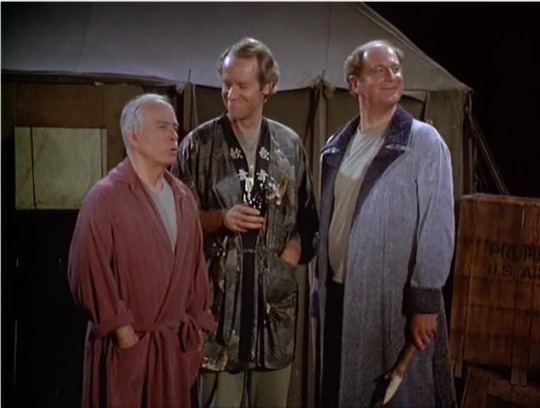
In the end, that’s what the show was all about.
Characters were exaggerated, sure. Scenarios were somewhat removed from reality. But at the end of the day, M*A*S*H understood that life, and war, don’t have a genre. There is drama, and there is comedy, and the two are intermixed, underscored by the occasional laugh-track, used sparingly as the show went on.
It’s important to note that the drama in the show wasn’t always big drama. It wasn’t always steady streams of patients into the O.R., or Hawkeye’s mental breakdowns. Sometimes it was Radar’s mom trying dating again, or Margaret getting married. And just the same, the comedy on the show wasn’t always big-laugh moments like the Mulcahy sound-alike contest. Typically, the comedy in M*A*S*H was rooted in something else: interactions between characters.
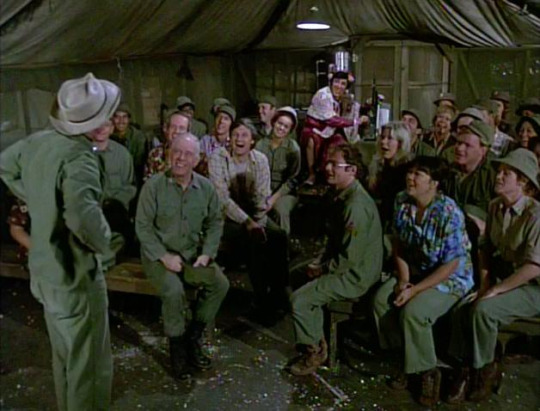
The humor in M*A*S*H was less reliant on ‘wacky hijinks’ and more grounded in Radar’s sneaky side-insults, Frank Burns putting his foot in his mouth, B.J. and Hawkeye laughing at one another’s jokes, or Mulcahy’s willful ignorance of some of the camp’s activities. The audience laughs with these characters, rather than at them. The characters feel like developed people, with lives and goals, and as a result, the humor and the drama work well together, rather than feeling juxtaposed.
In other words, M*A*S*H was a war show, full of good dramatic stories, with funny, memorable characters.
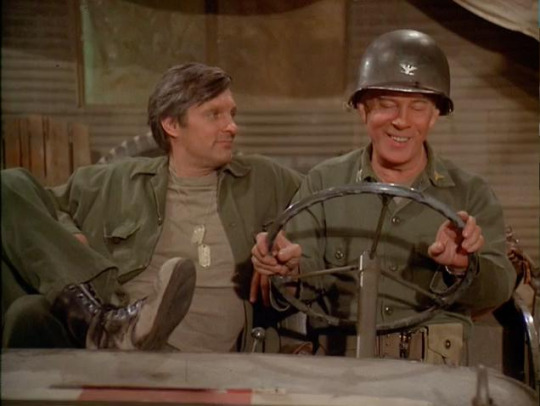
Thirty years after the most-watched television finale in America, that’s what people remember about M*A*S*H. We may forget the specifics of “The Longjohn Flap”, but the audience remembers what happens to these people, and the experiences they had. Those characters, and the situation, still holds up, and even today, viewers can still relate to those characters and their experiences. The laughs, the tears, and all the spots in-between, still speak to an audience, nearly a hundred years after the war the show was about.
Join us next time as we take a look at the personnel of the 4077th, and figure out what made them one of the most memorable casts in television history. Thanks so much for reading, and I hope to see you in the next article.
#M*A*S*H#70s#Television#TV#TV-PG#Comedy#Drama#War#Alan Alda#Loretta Swit#Jamie Farr#William Christopher#Wayne Rogers#McLean Stevenson#Larry Linville#Gary Burghoff#Mike Farrell#Harry Morgan#David Ogden Stiers#Larry Gelbart
6 notes
·
View notes
Text
My take (sorry for adding a ridiculously long essay onto your post OP, feel free to ignore) is that the answer is a complicated yes. More below the cut, ‘cause, god this is long I’m sorry.
So to ground that claim, I’ll start by saying that drift compatibility (in the first Pacific Rim, I have no interest in the weird retconning Uprising did with the concept of drift compatibility here) seems to be based mostly in the potential for two people to work in sync. We know that the potential of it can be gauged via sparring—Raleigh has that line “Remember, it’s about compatibility. It’s a dialogue, not a fight.”
To me, that explains Newt and Hermann’s drift compatibility later. We see over and over that those guys are intellectually/verbally sparring constantly, playing out old arguments, knowing precisely what the other is going to say before he says it. Even though they don’t always get along, and in fact lightly antagonize each other, they still understand each other. They can dialogue.
Which brings us to Hawkeye and BJ. Those guys can dialogue, too. Oh boy can they dialogue. Check out their first few scenes in Welcome to Korea. In the span of a few minutes the guys have already fallen into a few schemes together — passing Radar off as a corporal-captain using BJ’s bars, joking in code at each other, stealing a general’s jeep together. They fall into a rhythm of dialogue and action immediately. By the end of the episode it’s clear BJ’s completely aligned with Hawk (muddy, drunk, already mocking Frank, etc.).
I’ll concede that you can pass off a lot of that as plot pressure: WtK really needs us to get on board with BJ Hunnicutt, and get on board fast. Two of, like, five or six primary cast members are missing at this point, so Hawk (and the audience) have to see BJ and Hawkeye as compatible, or we might bail on the season entirely.
But that sort of immediate sense of connection stays on through the season. BJ and Hawkeye build a bar memorial to Henry in the next episode. By “The Late Captain Pierce,” Daniel calls BJ, not Potter, the camp CO, for information about his son’s ‘death.’ BJ knows Hawk well enough by that point to silently sense when Hawkeye’s mood dips at the party. Not to mention their ridiculously constant wordplay. They pick up each other’s jokes, finish each other’s punchlines. Also a sitcom dialogue convention (nobody talks like that) but, like, come on. If drift potential is based on dialogue compatibility, these guys nearly never miss a beat with each other.
That’s my ‘yes’ justification. My ‘but it’s complicated’ followup is based on the fact that drifting also according to the first movie relies on openness — willingness to let somebody into your head. I think this might be tough for both Hawk and BJ to a point, in different ways.
We know Hawk canonically has trouble prioritizing people over work. He’s not always the best at being present in that way, especially in intimate relationships, and so I imagine it might be difficult for him to focus entirely on being in the here and now—plus he has a few lines about thinking too fast, having trouble slowing down, which might pose a problem in regards to the “chasing the rabbit” drift issue where a person latches onto a thought and follows it, dragging the other person into their own mind instead of focusing on a problem at hand. Hawk is a force of personality. It might be difficult to manage that at first.
And then BJ. I think—and I know this isn’t always the most popular interpretation of the character—but I think he has a lot of layers. He’s got some interesting quiet anger that comes out in bursts, and he becomes increasingly (visibly...) angry as the war wears on. Conflicts where he and Hawkeye are ‘out of sync’ (see Preventative Medicine) are also increasingly common. Hence why I think there may be some issues with BJ’s willingness to let people in as time wears on. He seems to be keeping a lot of stuff down. He isn’t always the best at being honest with himself and others (see GFA) which could interfere with a successful drift, too.
That said, I do think those potential conflicts are the exceptions to their usual dynamic, which tends to be just ridiculously in sync (Mako and Raleigh have their own issues, too, and they have a stronger neural handshake than most pilots we see in the first movie). For Hawkeye and BJ, being in sync is a fundamental part of their sitcom buddy dynamic. They have a language all their own by script design, and I don’t think it gets any more “dialogue compatible” than that.
Are Hawkeye and BJ drift compatible? Sound off
#god OP i am so fucking sorry#tagged in by remy and lisa on this and. well.#that's the thing I'm Sensitive About (drift compatible beejhawk)#anyway. this is insane.#so sorry op. again. begging your forgiveness
143 notes
·
View notes
Note
For the ship bingo, may I get uhhh... pete/trudy (because I lov them), italian!grandpa beagle/grandma duck (op your mind 😩👌🏻) and scrooge/brigitta (out of curiosity) pwease?
Oooh, thank you!! Those are some very good choices because I actually do have quite a few things to say about them. XD
Pete/Trudy:
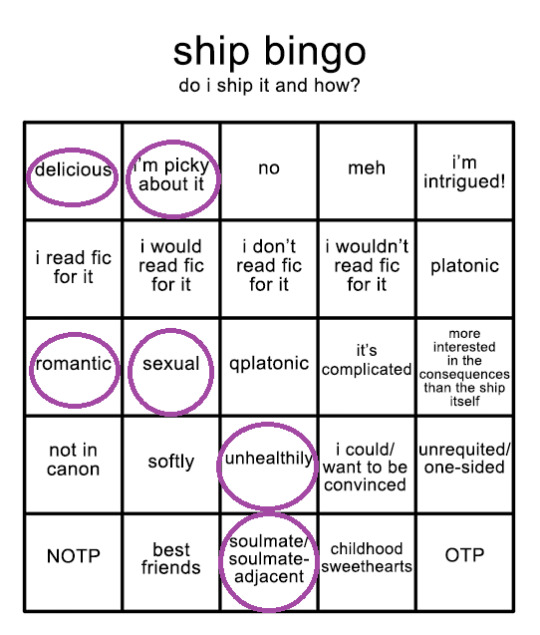
It’s not quite an OTP, not in the sense that I crave more of it and I’m always ready to talk about it, but I love it and think it’s a very good ship. I know it sounds silly because she was literally made for him... but they’re really made for each other. They’re literal partner in crimes, a well-oiled team and even a battle couple where one’s strengths and peculiarities complement the other’s, and at the same time, they’re just two cute, silly romantics who give each other lovey-dovey nicknames. It might just be my love for villainous couples who genuinely love and care for each other talking here, but I think that’s an adorable dynamic.
However, I am kind of picky about it. I remember reading some stories, years ago, where their domesticity was emphasized (which I did like) but the rest of their dynamic was... not that great. He thought she was a nag and she thought he was a boor, he didn’t care enough to remember dates and anniversaries and she was too demanding and uppity and had unreasonable expectations, he hated her cooking but couldn’t tell her that because she’d get angry and yell at him, there were jokes about her being fat or unladylike or both... sitcom married life, basically. I didn’t like that. I much prefer an expert thief Trudy who offers Pete some clever advice because they’re partners in work and in life and succeed or go down together, and a Pete who clearly loves her and likes being around her and cares about her opinions. Bonus points if they snark a bit at each other but like, mildly - not because they actually want to offend the other but because they’re generally snarky people. EXTRA bonus points if they use crime as a way to flirt or plot and execute crimes together like other people go on dates. I want them to have fun and make heart eyes at each other while robbing banks and whatnot. <3
My only exceptions are the Pete and Trudy in Wizards of Mickey and the ones in Cronache della Frontiera. Those are SO GOOD but it’s because of how lowkey or highkey fucked-up they are. And also because the Trudys in those universes are HOT. There, I said it. u.u
I’m not the biggest WoM fan (the first seasons were pretty cool and had some really interesting concepts, but the ones that followed... eh) but seeing Trudy as a rugged, fabulous evil witch pirate, so sure of herself and competent, was super fun... just like her bickering and flirting with arrogant dark wizard Pete!
When it comes to Cronache della Frontiera, where their relationship is Unhealthiness Central... oh, the shifting power dynamics! Badass established crime boss Trudy taking the inexpert, somewhat uncertain (and possibly younger?) newbie Pete in and being charmed by his cocky and determined attitude despite everything, finding out she does have a heart in the process, only for him to gradually become even darker than her and the driving force in their group! And the jealousy! The possessiveness! The love triangle that actually WORKS (at least for me, lol) because it’s not really a love triangle at all! The literal attempted murder! THAT is the problematic stuff I like to see, not some sexist trope about the old, fat (*eyeroll*) ball and chain!
Incidentally, WoM!Pete/Trudy and Cronache!Pete/Trudy are the reason I circled the “sexual” option. Thinking about Disney characters having sex might be weird, but those two couples? I’m 100% sure they FUCKED.
-
Italian!Grandpa Beagle/Grandma Duck:
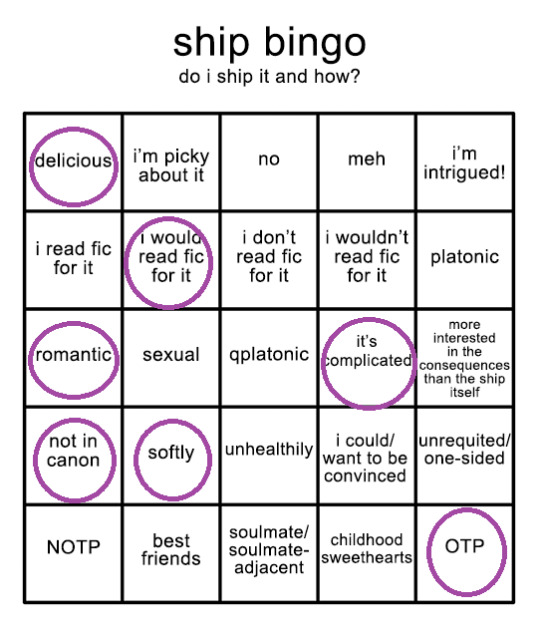
AAAAAAAAAAAAH, I LOVE THEM SO MUCH!!! ;_______;
It all started with this story where the Beagle Boys and their Grandpa were arrested after a botched attempted at robbing the Quacktown post office and Grandma Duck took pity on them and offered to let them work off their sentence on her farm in hopes that they’d learn to be good citizens, and the boys slowly started to like honest work and having a kindly old lady around but old Grazia stubbornly clung to their traditional thieving ways despite his life having improved, too, so there was always this simmering tension between them. Or maybe it was the story where Grandma Duck got it in her head that there was actually some good in Grandpa Beagle and he liked her company so he tried not to steal around her, and the Beagles were like “wtf is happening” and Scrooge was outraged and kept trying to warn Elvira off that risky “””friendship””” (seh), and in the end he did steal something and she caught him except maybe it wasn’t really him and maybe she was unsure about their relationship and self-sabotaging by looking for any excuse to call it off and he didn’t like being with someone who didn’t trust him and/or couldn’t accept him as he was so they basically had a messy break up. Or maybe the one where everyone in Duckburg was literally brainwashed by their new phones except for them and Scrooge because ahahah old people hate technology, and they joined up in this badass old people heroic team to save the city, and Grandma and Grandpa had this nice little “oh, you’re pretty good at this!” “well, you’re not bad yourself!” moment while they took down the villains.
... okay, so I don’t really remember which one of these came first, but still, thanks to all of them I am DELIGHTED at the idea of this romance. I mean, they’re both smart, headstrong, driven, generally sensible, sometimes petty, pretty damn badass old people who believe very strongly in their own values? Except those values are pretty much opposite because she’s all about honesty and hard work and doing the right thing even when it’s difficult, but he takes pride in being a thief and wants to get rich by stealing? But then, they both care a lot about family and tradition? Except her family is fundamentally good if quirky and he literally encourages his to be ruthless criminals, and the traditions they care about reflect that? They’re basically foils, and the contrast and the similarities between them are both so strong... and so entertaining!
And the soft old people romance! The possibilities for old-fashioned courting and quiet moments together just talking about their youth and the old days or about their families, the subtle but genuine compliments and expressions of affection, the rare but easy handholding and the heartfelt “I care about you”s...
I would DEFINITELY read fanfictions about them. But I think they would need to be either AUs (someone let them play a bickering couple in a parody or period story, PLEASE!) or, if set in regular Duckburg, either pre-relationship or mutual pining stuff. I’ve already seen them in a (sort of) romantic relationship in canon and it didn’t end well... and I honestly can’t see things ever ending any different. His nephews might come around and support them, especially if they liked her as a person and kind of came to see her as their grandma, too, like in that one story mentioned above, but I don’t think her family would. At least, not all of them, and especially NOT Scrooge, who’d do anything to keep them apart. Plus, unless he suddenly decided not to be a thief anymore or she decided to become a thief, too, - I can’t even tell WHICH option sounds more unlikely! - their differences would eventually drive them apart anyway.
And that’s... kind of another thing I like about this ship, weirdly enough? The “it’s not unrequieted but it still can’t happen, and not because of any external pressure but because of who they are as people” angst. And the “I can’t be be with you because of who you are but I wouldn’t love you if you were anyone else” bittersweet angst/fluff combo. As the bingo square says, “it’s complicated.”
-
Scrooge/Brigitta:
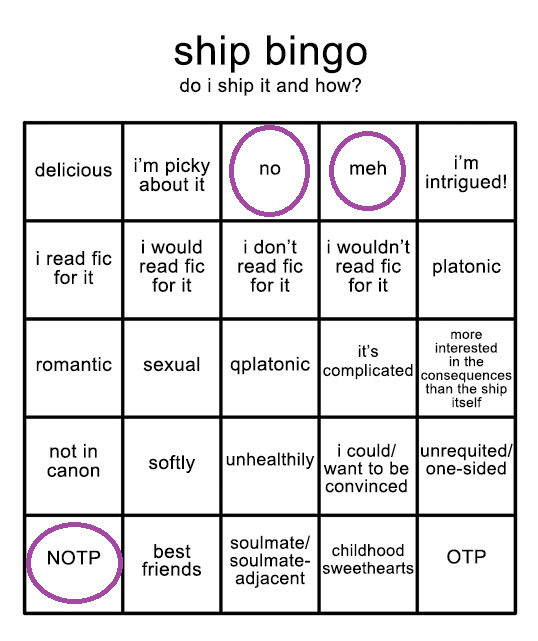
No offense to anyone who does like it... but I just don’t. I usually appreciate unrequieted ships for the angst, but here the obsessive aspect is a major turn-off for me. Especially in those stories where it’s portrayed as a positive thing, like an expression of True Love or a sign that Brigitta is a strong-willed person who just has to hold out a little longer or push a little harder before she finally gets the happy ending she deserves. Or in those stories where other characters suggest Scrooge is just playing hard to get. Or where he’s forced to endure a date with her as punishment for something. Or where he gets scolded for not agreeing to go out with her, rather than for treating her too rudely or taking advantage of her feelings to reach his goals. Just... let people not date people they don’t like that way, maybe?!
That’s not to say I don’t like Brigitta as a character. I do, I think she has potential, and I don’t like it when she gets the short end of the stick, either. Like when Scrooge uses her to get what he wants, or he treats her badly even if for once she’s not being the clingy, smothering person she usually is around him.
I do like those rare moments where they get along and he’s nice to her because he wants to and not because he’s prompted by either guilt or pressure. But that’s not really enough to make me ship them. Like, I could see them as friends? Or as mentor and pupil or equal business partners, since she’s a businesswoman in her own right? Bur never as romantic partners.
I’d say I wouldn’t read fic about them, but I actually did, once. It was a sad story about Scrooge dying and Brigitta trying to rebuild her life without him when he had been her goal and purpose for so long, and it had hints of Scrooge/Goldie, but technically, it still counts. And I actually wouldn’t mind reading more stuff like that... with Brigitta learning to let go and live her own life for herself.
#ask#evilblot#ask meme#ship meme#disney comics#disney ducks#duckverse#mouseverse#topolino#anti scrigitta#anti scrooge x brigitta#pete x trudy#peg leg pete x trudy#grandpa beagle x grandma duck
4 notes
·
View notes
Text
DuckTales 2017 - “Quack Pack!”

Story by: Francisco Angones, Madison Bateman, Colleen Evanson, Christian Magalhaes, Bob Snow
Written by: Bob Snow
Storyboard by: Vince Aparo, Kristen Gish
Directed by: Tanner Johnson
TGIHD. Thank God It’s Hump Day.

Our episode begins with Huey preparing his Uncle Donald for his big family photo opportunity, an opportunity he never seems to have due to various mishaps. He hired a professional photographer, and even had him practice his million dollar smile. Huey says that nothing is going to stop this day from being ruined, and then Dewey, the one-liner-spewing stand-out sibling, shows up. We know he's the stand-out because the laugh track cheers as soon as he comes in. Yes, a laugh track, just like this series always had.
Some other characters show up, mostly to reintroduce them to the audience. We have Louie, the schemer who is currently trying make his mother jump off the roof and get people to pay to see it. Said mother is Della, a former moon-dweller who is perfectly fine with because she used to be on the moon, and will seemingly bring that up with almost every line of dialogue she has. Finally, we have Scrooge, the relatively down-to-Earth, no pun intended, person who knows this is ridiculous, though he does ponder if he can make a lot of money from that dangerous stunt before saying "no".
Instead, they have to get the study ready for the photo, something Scrooge promised he would have done already. Though he tells Donald that he would never break a family promise, the sweat he's wiping off his brow is telling a different story. He, Della, and Louie slowly back away into the office, and nobody is the wiser. Oh Scrooge, I’m sure he has some money related reason for it.
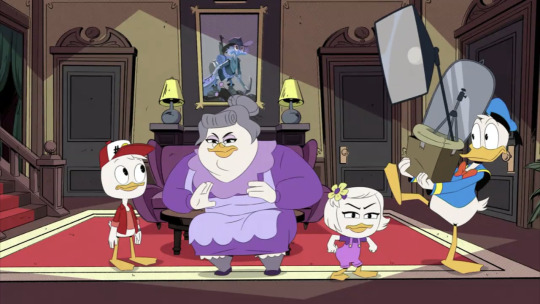
As they back away into the office, we get two more stand-out characters: Mrs. Beakley, who constantly has to deny being a spy despite coming in through one of those wires on the roof, and Webby, who introduces her grandmother as a professional spy. She's the quirky one!
At this point, Huey starts to think that something is very off with everything around him, and asks his Uncle Donald if he feels the same way. Donald turns to Huey, and responds in the familiar way we all know and love.
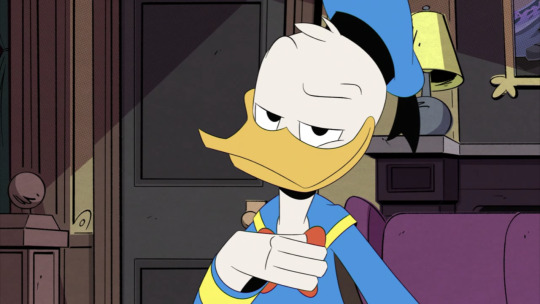
Donald: (clears throat) Well, everything seems perfectly normal to me!
Ah, Donald, with his distinctive voice by Don Cheadle; perfectly normal, and yet suave enough to make the laugh track cheer. See, everything is normal, from the way Donald Duck talks, to the laugh track laughing at even Dewey's cheesy one-liners, to the 90's TGIF sitcom-like establishing shot this scene started with. Nothing wrong at all...except for everything.
Yeah, if this is the first episode of DuckTales 2017 somebody watched, they're going to be very lost. I mean, people are saying this is an adventure show where they go all around the world, using their wits to fight criminals, monsters, and aliens, but this is a sitcom with a laugh track! There are some ways people could figure it out already, namely that cartoons would never use laugh tracks unironically, but it's good that this originally aired right after a normal episode.

After a really short version of the usual theme song that consists solely of "DuckTales, woo-oo" and a commercial break, we get the theme song showing off the cast of characters. This includes Launchpad McQuack, who even has his own rock band, the Crash Happies. In we end, we get our title screen: Quack Pack. Yes, this is what the show's called now, taking the name from the infamous DuckTales spinoff where they decided to age up Huey Dewey and Louie to teenagers.
Outside of the title and a very similar pose for the title shot, it doesn't take anything from that show, just the 90's sitcoms it was trying to ape. Huey, Dewey, and Louie are still kids, and the plot for this episode is kind of pedestrian compared to the teenaged siblings turning into superheroes and battling a planet-sized Uncle D who just wants them to clean their rooms while his rage makes him destroy the galaxy. Even the theme song is just instrumental soft rock. It is possible they felt lines like "I feel like quacking, so I think I will, I'm gonna quack quack quack until I get my fill" are too cheesy even for a parody.

As our episode truly begins, we meet another soon-to-be-beloved character, and one that isn't one of the familiar ones: Knox Quackington, that photographer Huey hired. He's an artiste, as described by Huey and himself, and he has the accent for the kind of stereotype that term was made for. Unfortunately for him, he describes himself as someone who uncovers the world's secrets, and Webby knows that could only mean he's a spy. That quirky character ends up taking him to a dark room, where she beats him up. Oh, Webby!
While this is happening, Scrooge decides to try to ready up that study.
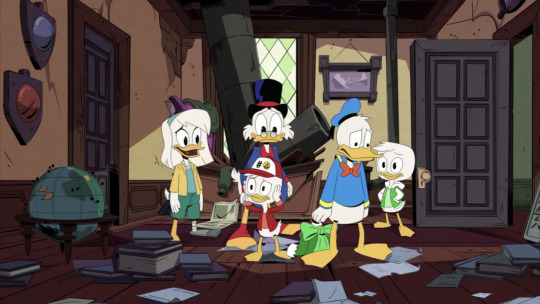
Unfortunately, the study is in even worse shape than he imagined. Scrooge didn't want to pay for actual repairmen to fix his problems, and the problems just got worse and worse. I'm sure there's a metaphor in there somewhere. Louie responds that Scrooge's lack of responsibility legally makes him liable for his own lack of responsibility. He didn't really change much at all for this sitcom plot, huh.
Huey and Donald show up to see Scrooge's study in ruins, and Donald explains why he can't just go to a different room: this is the only room where the buttons glint in the way he wanted! Louie says, with sarcasm, that the button glint issue is so much more of an unsolvable problem than a broken room, and everyone just makes an "oh, Louie" pose as they pause for the laugh track. Huey is a bit more optimistic, as he happens to have a Junior Woodchuck Guidebook...
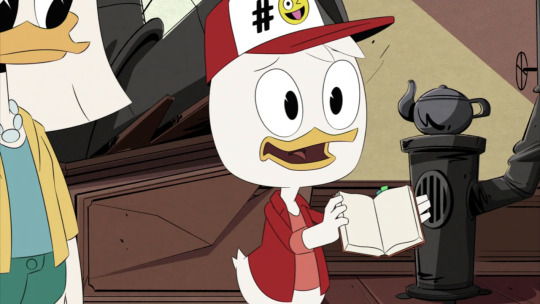
...a Guidebook that is completely blank. Donald speaking like a regular duck and the blank book makes him notice that the mysterious laughter that happens constantly doesn't seem to be coming from anyone in the room, and realizes something is very, very wrong. He runs out of the room as everyone else makes an "oh, Huey" pose as they pause for the laugh track.
This episode definitely gets the sitcom parody down to a T. They even have transitions where they're just dancing or flicking hearts from their smartphones. It reminds me of That 70's Show, and I don't watch enough sitcoms to know if there's an earlier example than that.

Distracting us from Huey slowly figuring out what's going on is Dewey doing what he does best: giving himself and Donald mohawks. Oh, that rascal, that's going to be a real problem for the photo op. Huey shows up only to see that they paused in place, because it's time for a commercial break. Of course, Huey is the only one aware enough to realize everything is getting darker. Plot important forth-wall jokes is this episodes forte.

After all the real commercials, because it would have been a missed opportunity if they didn't do a real commercial break there, we get a commercial for the fictional Pep, featuring a guy who's clearly played by the same actor as the photographer. If Disney XD didn't require "now back to the show" bumpers, this would have caught people a little off-guard. This ad specifically features him opening up a can of pep, causing a tidal wave of Pep. This actually becomes important later, though I won't go into detail.
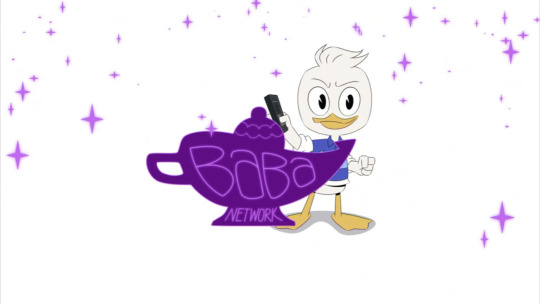
We then cut to the channel ID, which is exactly like the old and current Disney Channel channel IDs. The big difference is instead to drawing Mickey ears, Dewey, the lovable breakout character everyone loves, is drawing a lamp. It's the kind of lamp that would hold some sort of djinn, and not the djinn that looks for found lamps, either! Also, it's the Baba network...hey, just like that Baba guy the show is now credited to! Hmm...
Huey, of course, managed to notice all of this, and he runs back to the study after Donald tries to convince him to get some rest. Meanwhile, Mr. Quackington is all tied up by Webby, thinking he is some sort of suspicious special agent, and has Launchpad keep an eye on him. This leads to Launchpad and his band thinking he's a different kind of agent. Those are all about as far as they get with those plots, to be honest; it mostly focuses on Huey's plight and a plot with a certain other character that will appear in a few more paragraphs from now.
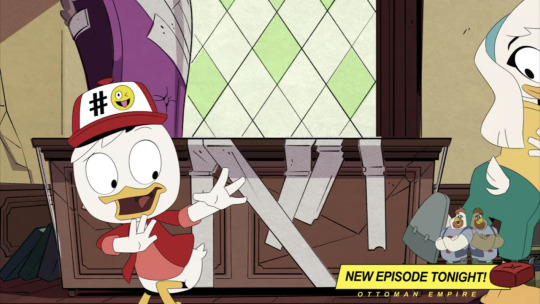
Huey's plight is about why he's in this strange realm where people are constantly laughing at him. He then sees tiny versions of Randy and Johnny from the Ottoman Empire. No, I'm not going to do the joke this time. That's in the past, much like 3 tiered rating systems. Huey figures out that is is an ad, and the dominoes just drop from there as he realizes the guidebook he was holding was a prop, the room doesn't actually have any pipes, and one of the doors just leads to a brick wall.
Nobody is convinced, and they're just thinking he's going coo-coo. However, he does have a fool-proof plan: point to the fourth wall, which they only now notice is missing.
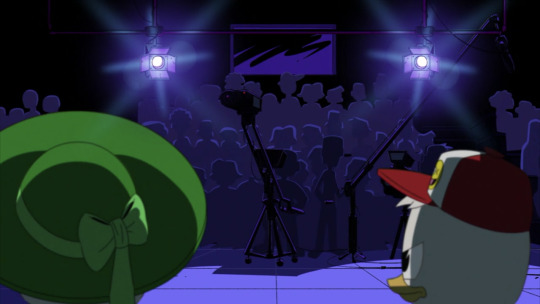
They see some lights and some strange creatures that look sort of like those hairless apes Ludwig Von Drake was warning us about, but that can't be it! This is definite proof, and they all take it. Glad they won't take the entire episode to realize this.
Meanwhile, Donald shaves off the mohawk, only for him to have a bald spot. What's only slightly better is that Webby, who wants a meat tenderizer for some "cute girl stuff", still doesn't want to tell Donald where the photographer went. What else could go wrong?, says Donald, clearly signalling for something to go wrong. Though, if anything, something is going to go very right for us, because what would a sitcom be without a guest star?
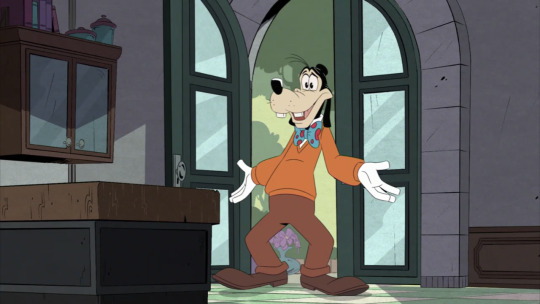
Appearing for the first time in DuckTales is Goofy. This is heavily based on the Goofy from Goof Troop and A Goofy Movie, even wearing the same outfit and making the same pose he does in the former's intro a few seconds later. Donald doesn't seem to think too highly of him, though, and the way he "borrows" some ketchup by squirting it into what I hope is his pocket is not helping matters. Nonetheless, his appearance is just like one would imagine an appearance of Goofy would be like in DuckTales.
He does fit into the photography plot pretty well, as his job in this appearance is a photographer, but I'm more willing to focus on how Goofy is also someone who notices a change in Donald. Maybe it might be something else, but I'd like to think that Goofy is more familiar with Donald's usual voice. As in, he's a real person and not just a construct of whatever this is. There's hints of this throughout the episode, and we did get to see Roxanne and Powerline before, so it's not that much of a stretch.
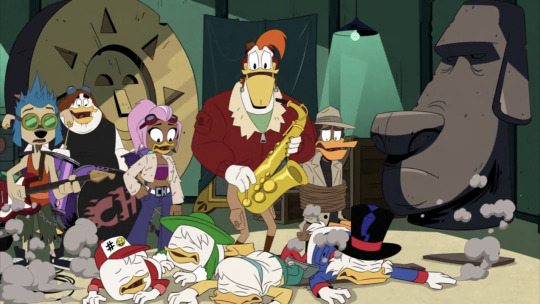
It doesn't take long for the A plot of Huey dealing with this strange realm he's in and the B plot of the kidnapped photographer to crash into each other. I mean that literally, too, as Team Believes They're In A TV Show collides with Team Gotta Impress The Agent as the floor of the study collapses right into the room the photographer was kept in.
Slowly but surely, Huey convinces the rest of the people that something is wrong by simply saying that they should be going on an adventure. This is supposed to be an adventure series with an adventurer, and the biggest adventurer of them all, Scrooge McDuck, realizes it, too. However, he has no idea what would happen to get them into this realm.
Dewey: If only I could remember... (scratches his chin)
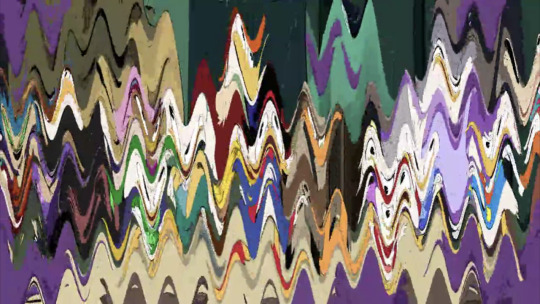
Everyone notices the world around them swirl around, and they panic until it stops. Huey tells them that this is a flashback, and they could use this power to try to figure out how they got into this mess in the first place.
At this point, Donald is the only one that thinks trying to get out of this world is just a waste of time, even stating that they should get back to the plot, er, photo. Yes, in that way. At this point, it was pretty obvious who is the culprit, but this scene in particular reveals a different co-culprit.

Finally, we get to see what was really happening: during an adventure to find the lost lamp of Collie Baba, they were stuck in a trap involving a ton of scorpions. Donald, in the barely comprehensible voice we all know and remember, decides to wish to himself that he would have normal family problems.
Donald's actions in this episode do make sense. Even though one of the main reasons why Donald Duck gave up on adventuring has been resolved, one cannot help that Donald just wants to be with his family, doing family things, and not getting into adventures that may risk his and his nephew's lives. I'd imagine being kidnapped by Moonlanders would do that to a guy.
After they get out of the flashback, they notice that the photographer is slowly trying to leave the room, and everyone knows at this point that this guy is not who he says he is. I mean, we got to see him quite clearly in that flashback.
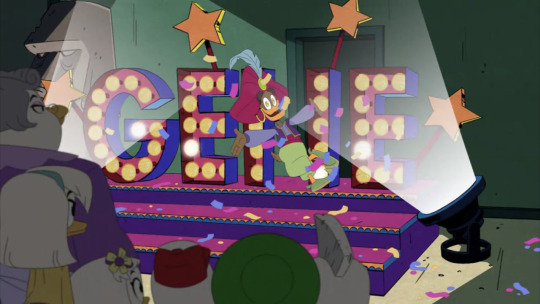
The photographer is revealed to be Gene the Genie. We managed to get two rebooted characters out of Treasure of the Lost Lamp, and somehow they're completely separate from each other. He's here to make his master's wishes come true, and that master happens to be Donald. Donald still has two more wishes, and he could use his second to undo the first. One problem: he loves it here.
We also learn the reason why this show is dated: he hasn't been out of the lamp since 1990. This is another nod to Treasure of the Lost Lamp, as that was its release year. Goof Troop was a few years after that year, but I'll let that pass. What I might not let pass is the sheer amount of internet references, something that wasn't too widespread in 1990. Huey sure wouldn't have his emoji hat, also. Maybe their modern technology combined with Gene's sitcom world, but I felt that was a little missed opportunity to see some time-related shock.
Anachronisms aside, I have to mention this particular scene when the siblings ask how long they're going to stay in this realm if Donald decides against ever letting them out.

Gene: Probably at least three seasons, plus spinoffs. And I assume they'll reboot the show eventually!
It's pretty obvious why that line stood out. He really must be stuck in the past; most reboots are softer and rounder nowadays. I'd say more, but I'm trying not to fill that "YOU-KNOW-WHAT potshot" jar.
They want to go home, forget the three seasons, the spinoffs, and the dark and gritty reboots. Not speaking of softer in any sense of the word, that line does not go too well for those fourth wall dwellers...
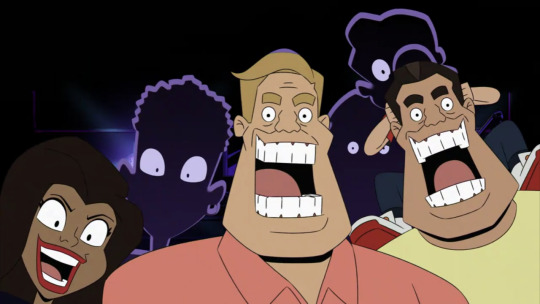
...and we get our answer to how the ducks would react to hairless apes in the same universe as they are. Granted, when they're all grinning these horrifying open mouthed grins, it would make even people in this universe shudder. I know I am!
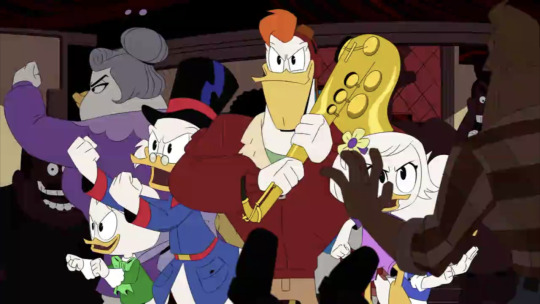
We get this big scene where they beat up the humans while they wait for Donald to come to his senses and wish them out of here. I'm not going to describe this scene in detail because there's just so much here. The mentioning of different episodes, the realm trying to fix itself, and a big rotation scene, pictured, that was put to good use in the trailers.
Another line in particular that stood out for me: Louie says that the episode where his pet snake gets loose isn't a well written plot. Gene tells him everyone's a critic. I can't help but feel that one.

I will mention that we do get to see Goofy have a parent-to-uncle talk with Donald, and, yes, this leads to even more for the Goof Troop/A Goofy Movie fans. This is a very pivotal moment in the plot, and it's all because of the guest star. Honestly, even if they're trying to get out of the sitcom, that is a very sitcom thing to do!
It shouldn't be much of a spoiler to reveal that they do manage to get out of the sitcom universe. We got a F.O.W.L. plotline to get to. How exactly do they do it? Does Donald get his two other wishes? Go watch the episode and find out for yourself, but I'll say that it is satisfying.
How does it stack up?
This is a very interesting and very funny episode. Purists may be a little upset by this episode focusing more on mimicking the 90's than take any inspiration from the comics, but this is a good tribute to the era. It all hold up together, and I enjoyed every minute of it. Fantastic episode, 5 Scrooges.

Next, we finally get to that F.O.W.L. plot, not so oddly enough!
← Challenge of the Senior Junior Woodchucks! 🦆 Double-O-Duck in You Only Crash Twice! →
17 notes
·
View notes
Text
“In Full Flight”: an HYH recap
The most delightful Homeland episode since “Two Minutes” picks up with Mike, Jenna (in a chambray shirt), and Alan in Kabul station, observing drone footage of Carrie, Yevgeny, and crew. Jenna deduces that they’re probably going to Kohat, and she is correct for the first time all season.
Mike asks about an exfiltration team from Islamabad but they won’t be there until later tonight. Saul interrupts their pow-wow to ask what’s going on:
Saul: What is this about grabbing Carrie Mathison? Mike: Oh, hello, sir. Let’s go into my office. Saul: Fuck your office and fuck you, too. What are y’all talking about? Mike: No problem, sir. A special ops team is planning to grab Carrie. You know, because she’s a defector. Saul: FOR FUCK’S SAKE SHE IS NOT A DEFECTOR. Actually she’d be right here telling you that herself if you hadn’t cornered her like an animal three hours ago without telling me. Mike: Actually actually she was supposed to be back in America like a week ago but then she broke custody and started her adventure with a GRU officer. Now they’re out there doing God knows what. Sir. Saul: I’ll tell you what they’re doing. They’re finding the flight recorder. Mike: What’s a flight recorder? Saul: I can’t believe I’m still having this conversation with you. Do any of y’all have brains or critical thinking skills? Mike: By the way, sir, you’ve been called back to DC. Saul: Fuck my whole life. Fuck all of you too.
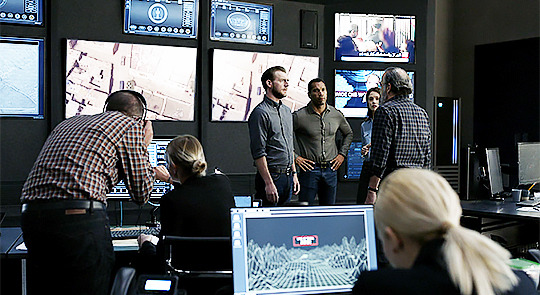
Carrie and Yevgeny are very much on their way to Kohat. It’s been just a few hours since Carrie turned her back on Saul and her loaded expression as she stares out the window is very much “questioning all my past life decisions.” That could take a while, Carrie!
Carrie and Yevgeny arrive in Kohat and begin driving under a series of … I have no idea what they are, basically overhangs in the street so you can’t tell where their car is. It’s very “From A to B and Back Again” when Quinn lost Haqqani in the classic baseball stadium game “Which hat is the ball under?” trick. The team in Kabul is annoyed and prepares for a grid search.
Carrie & Co. are checking into a hotel for the night. Yevgeny makes a very obvious performance of leading Carrie to her room and what ensues is the most sexually tense scene on this show… ever. First he offers her some Ambien and Carrie cracks a joke for the first time in eight years and says she could open up a pharmacy of her own.
She apologizes for not telling him about the flight recorder sooner. At first it was all personal, she needed to find Max, she couldn’t focus on anything else. Yevgeny asks what she thinks actually happened to the presidents’ helicopter, since she certainly doesn’t believe Jalal was involved. She thinks it was probably just a freak accident: pilot error, mechanical failures, shitty weather, any or all of the above. Then she reveals that detail from the fifth episode, that the Black Hawk fleet has had a series of mechanical issues. Oh, I should add that this conversation all takes place in the doorway of Carrie’s hotel room and every fifteen seconds or so Carrie and/or Yevgeny glance back toward the bed. You can cut the sexual tension with a knife.
Yevgeny asks if there are any more secrets she’s been keeping from him. She smiles, pauses… it’s the most interesting moment. Then she says very quietly, “I think I’m fresh out of secrets.” They stare at each other for a long time, Yevgeny probably wondering if Carrie is going to invite him in and Carrie probably wondering if Yevgeny can take a fucking hint. Finally, I exhale, and Yevgeny says to just “bang on the wall” if Carrie needs anything, which at least elicits a laugh.
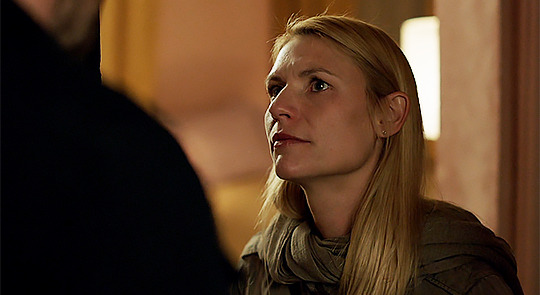
Elsewhere in Pakistan, a Pakistani military officer named Aziz has come to see Bunny to ask just where the fuck Tasneem is. Aziz is pissed because Tasneem was supposed to control the Taliban—first Haissam, then Jalal—and her “incompetence” has led to the Americans threatening to invade. Bunny is the opposite of worried. The Americans are all talk, no bite. They won’t actually invade Pakistan for failing to produce a man they claim they can’t find. I guess he hasn’t met John Zabel. Anyway, he says Tasneem is off to find Jalal somewhere in the mountains.
Instead, she actually meets (Haissam) Haqqani’s right-hand. She is beyond pissed that he just let Jalal control the shura last week. This is all so fucked. He doesn’t have much of a response, beyond, “well, he was the emir’s son, so I guess so?” He offers to take Tasneem to Jalal but only if she puts a hood over her head and lemme tell ya, Tasneem is none too pleased about that either!
It’s the next morning in Kohat and Carrie and Yevgeny really are going shopping, just like the logline said. They’re winding their way through the bazaars on the street but still no luck finding this flight recorder. Enter A Kid. He’s all “pardon me, excuse me,” and Yevgeny puts on his best Dad Hat and tells him to get lost. It’s very touching. Then he says he knows what they’re looking for, which is enough to get their attention.
He takes them to a shop where Mr. Shop Owner #1 is like, “Hi, do you like flight recorders? Because I’ve got lots!” Unfortunately he doesn’t have the one they’re looking for and he also seems pretty skittish because a) what the hell are a Russian and an American doing together? and b) is this official government business or something private or, like… just generally what the hell?
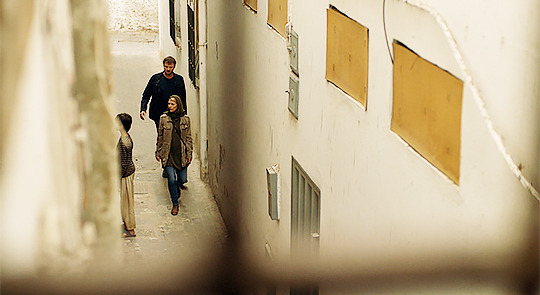
Saul has arrived back to DC and meets Hayes in the Oval Office with our favorite Odd Couple, Linus and Zabel (this should really be the name of a sitcom). Saul passively aggressively says he knows of Zabel “by reputation.” Aside from that jab, the meeting unfortunately goes from meh to ugh to wtf for Saul. He has to play bad cop and tell Hayes that the video of Jalal is unvetted intelligence, completely lacking in context, and probably just a straight-up lie. Hayes has the expression of someone who’s never followed Thought A to Thought B—which is true, obviously—and Zabel has to jump in to say of course POTUS has already done the Thought A to Thought B exercise, he just arrived at a different conclusion. You know, mine! The best part of all THIS is that as Saul grows increasingly incredulous at the conversation, Linus sits there, silently, looking like he’d like to be swallowed up by an alligator. Afterward:
Saul: Wow a bit of warning would have been helpful. Or maybe just an assist there, Linus. Linus: I didn’t even know you were coming back. I’m outside the ~information flow~ Saul: God, we’re so fucked. Linus: I wish I’d get swallowed by an alligator.
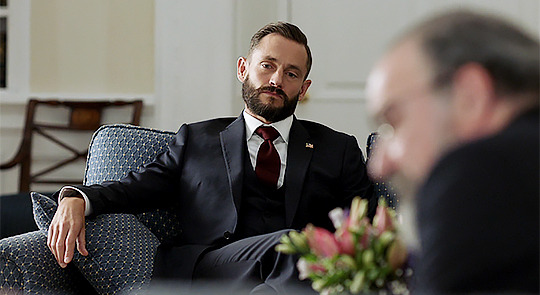
Back in Kohat, Carrie has entered another shop, this time sans Yevgeny. This one proves a bit more fruitful. She actually finds Max’s rucksack, which means that flight recorder had to have been here recently. Mr. Shop Owner #2 feigns ignorance, but Carrie is relentless.
Yevgeny enters all of a sudden to let her know that that special ops team from Islamabad is here, so they need to get out of there, pronto. He leaves quickly to lose the tail and instructs her to go back to the hotel and wait. His absence gives her the perfect opportunity to keep grilling Mr. Shop Owner #2, whom I actually love and seems really sweet. Poor guy is just no match for Carrie. He finally reveals the flight recorder was there but he sold it to a broker he works with. Carrie offers him a lot of money to find the broker and get the flight recorder back there for a trade at midnight.
Tasneem gets the black hood off her head in exchange for an audience with Jalal, but homie remains pissed. Jalal is sort of confused at her reaction. A few episodes ago she was plotting to put Jalal in the place he’s currently in. What changed? Well, for starters, now the Americans are threatening to invade Pakistan. She says he’s got to go to ground, but he refuses to run.
Jalal: Who do you think I am? Tasneem: You’re the loser whom I picked up on the side of the road. I bandaged your feet and listened to you crying about your daddy issues for hours. Jalal: You think that you control us. Actually it’s the other way around.
He leads her up to a rooftop where hundreds of Taliban fighters have gathered. He says the last time the ISI got in the way, they killed a thousand of their officers on the street. And now they’re twice as strong, so you do the math. Tasneem has a general “oh fuck” expression on her face and… same.
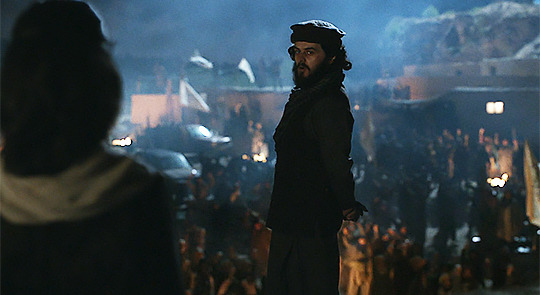
In Kohat, Yevgeny finally shows back up in Carrie’s hotel room. He reveals that eight men are hunting her and they need to leave, now. She says they can’t, as they haven’t found the flight recorder yet. Of course we know Carrie has found it—and in hindsight, at this point Yevgeny probably does as well—but she needs to stick around a few more hours to make the trade. For a split second you think maybe Carrie is going to preoccupy Yevgeny for a few hours in her bedroom but instead she calls Jenna.
Carrie: Hey, how’s it going? Jenna: OH MY GOD I STILL HATE YOU. Carrie: Chill for a second. Also I know you’re walking toward Mike and do yourself a favor and pause and just listen to me. Jenna: Ugh, fine, I’m listening. Carrie: I need you to give up the location of the exfil team that’s looking for me. Jenna: Are you high? Carrie: I am not, but you are if you think this will end up any other way than me convincing you. Jenna: You’re putting me in an impossible position. Carrie: You must do this. I compel you. Jenna: If I give up their location, you’ll turn yourself in there? Carrie: “Sure.” Jenna: Ok I’ll call you back.
This entire conversation transpires with Yevgeny sitting on the sofa in Carrie’s hotel room, legs crossed. It’s… I’ll be honest, it’s hot. When Carrie hangs up he applauds her performance and says she was clever and convincing. That’s right, Carrie played Jenna… again. Again! Again again again!
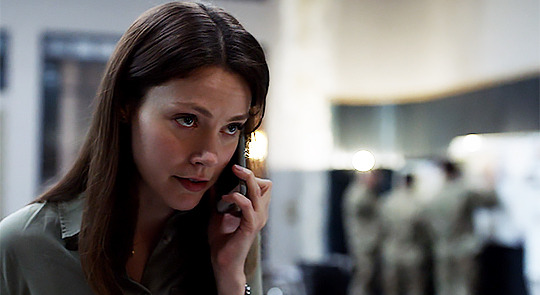
Carrie is kinda down on selling out her own people but Yevgeny says she did it for all the right reasons and in any case, the local police will only hold them for a day (uhhhh yeah right). He starts to compliment her strong instincts. He really respects her for that.
“Why, how do you do it?” Carrie asks.
“Me? I am more of a planner,” Yevgeny answers.
The alarm bells start ringing in her head and Carrie asks him all speaking of which whether he arranged for them to “run into each other” outside G’ulom’s office way back in the season premiere (show time: 10 days???). Before he can answer, Jenna rings back and tells Carrie the safe house location. Carrie says “you did the right thing” and the amount of self-disgust in her expression for this just being too fucking easy is … significant.
A few minutes later, Mike is on the phone with one of the special ops team members in the Kohat safe house. Local police have surrounded the building. Exasperated, Mike tells them to stand down. One by one, they file out and are led into custody. Jenna watches in horror and the amount of self-disgust in her expression for this just being her life is… also significant.
In Rawalpindi, Tasneem is at Bunny’s house and freaking out. Jalal has consolidated power extremely quickly. She’s concerned, but Bunny says they just need to take him out, root and branch. Bunny is offended by the prospect of being ordered around by a smarmy teenager but Tasneem thinks they need to protect him. If Pakistan protects Jalal, they’ll protect themselves too. And they need to respond to the Americans not with concessions but with threats just as strong. Remember when they were three minutes away from a generation-defining peace agreement?
Back in her hotel room, Carrie is growing restless. She decides to get some fresh air and by that I mean she jumps out the window to get the show on the fucking road. On the way she calls Saul, to whom she is apparently still speaking. She asks if their protocols for transferring money over the dark web are still a go and he says yes. She says she’s got a lead on the black box and he promises to arrange the funds ASAP.
Carrie winds up back at Mr. Shop Owner #2’s shop. Mr. Shop Owner #1 is there, too! Plus the broker. They do a little thing, Carrie says she won’t pay any more than $999,999, she is very In Charge and it’s pretty great to see. Not that we needed any more convincing, but the kind of instincts and improvisation Yevgeny admired just a few hours earlier are on full display here. She knows exactly what to say, when to say it, and how to say it. It’s breathtaking.
What’s also breathtaking is Carrie doing something correctly with a computer. Apparently the black box just hooks up to her Macbook with a USB-C cord… whoulda thunk?! After pulling a gun on Mr. Broker and telling him to beat it, she starts listening to the cockpit recording.
Then Yevgeny arrives! She starts to apologize but he stops her—he just wants to listen. They each share an earbud like goddamn Jim and Pam and continue listening. Turns out, Carrie was right. No one shot down that helicopter. A freak mechanical malfunction, “brace for impact,” etc. “Fucking helicopters,” Yevgeny says.
Carrie attempts a segue and says, “So… what now?” She wants to get this to the embassy in Islamabad. He wants to do the opposite of that. Then Carrie starts on him. Maybe he’s not such a bad guy after all. Maybe he’s actually… good.
Carrie: Plus, I’d owe you a favor. Yevgeny: Carrie, if I drop you off at the embassy I’ll literally never see you again. Carrie: Not true. I won’t betray my country, but I’d still move to Scottsdale with you. Yevgeny: I still don’t believe you. Carrie: Why not? You’ve already helped me a ton, and it’s cost you nothing! There has to be a way where we can make a “mutually beneficial arrangement.” Yevgeny: Is that what they’re calling it these days? Carrie: What? Yevgeny: What? Carrie: …anyhow, aren’t you sick of all this bullshit? Shitty bosses, shitty politicians, clearly the current way of business isn’t working for us. We could do better. You and me. We could chart something new here. You and me. God, we’re already halfway there! Yevgeny: Our own private network, huh? That would be nice, but it’s a pipe dream. Also, I like what you’re saying, but you still lied to me. Carrie: Technically, I just withheld the truth. Which is exactly what you did to me. Yevgeny: Heh? Carrie: The asylum, Yevgeny. What actually happened? We just took long walks in the woods and shared our life stories and you just happened to be the there the day I tried to hang myself? Give me a fucking break.
She moves closer and mentions the whole “picking up where we left off” thing. Well, will he or won’t he? Because she’s already decided.
There is a long pause and then they start making out. It’s exactly what you’d expect it would be, by which I mean it’s really hot! The scene is fraught with the unknown. How much are they playing each other? How much are they being genuine? Like Carrie says, they’re living in the grey areas. And who’s the first to blink?
Evidently it’s Carrie. After a few moments she breaks away and says they need to wait until after Islamabad. “Ok,” he says quietly. She tries to kiss him again, but he pulls ever so slightly away.
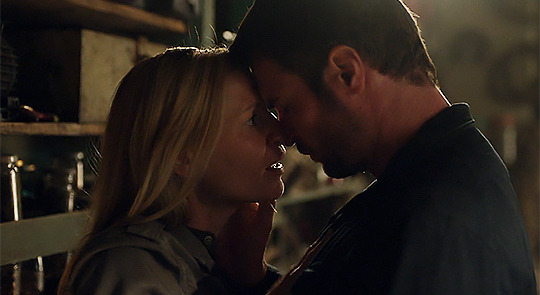
She hops off the table and begins to pack up the flight recorder. At that moment, he stabs her in the neck from behind with a tranquilizer. “Sorry, baby,” he says as she falls unconscious.
In DC, Saul is waiting anxiously by the phone. It rings. It’s not Carrie, but Linus. Everyone’s in the situation room, there’s some sort of activity in one of Pakistan’s nuclear facilities. Saul’s day goes from bad to worse.
In the situation room, resident hottie Scott Ryan is giving a PowerPoint presentation about said activity. Hayes is trying to understand literally anything that’s happening. Zabel explains that Pakistan only has the nukes in the first place to defend against a possible invasion from India. They’ll never actually use them. Saul growls that that’s because India isn’t fucking stupid enough to invade Pakistan. Hayes is beginning to understand the whole concept of “consequences” but before his mind can dwell on that for too long, he decides to just up the ante. More troops, more preparations for war, more of the same.
Saul’s day is not possibly as bad as Carrie’s has wound up. Yevgeny carries her, still unconscious, back into the hotel room. He places her gingerly on the bed and then kisses her forehead. He shuts off the lights as the camera moves in slowly on her her peacefully sleeping face.
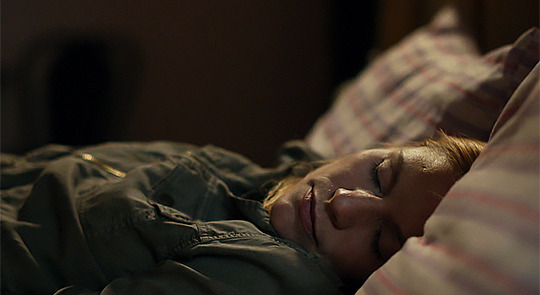
15 notes
·
View notes
Text
Opinion — That 90's Show I know this is blog primarily for my opinions and thoughts on games, anime, and manga but since I never use my personal account, I figured I post this here. That 70's Show is my favorite sitcom of all time. So, I was skeptical when a sequel/continuation was announced but even more so by the fact that Netflix was involved. Now, having watched the entire season, my overall opinion is that it was mediocre. Not bad. Not great. Just average.
The old cast cameos along with Red and Kitty were the highlights of the episodes. The new kids however are a different story. When the scenes are focused on Red and Kitty, the show feels very reminiscent of That 70's Show. When the kids are the focus, it feels like you're watching a cheesy 2000's Teen Nick/Disney Channel show. I understand that the new cast is young, and ten episodes isn't enough for them to settle into the roles and develop some chemistry, but their comedy and line delivery is horrible. The first few episodes were rough. It gets slightly better later though.
Now, onto the characters themselves. Despite my criticism of the acting, the characters themselves are mostly fine. Leia is basically Eric but a girl. There are two Kelsos for some reason. Jay is Kelso #1 but slightly less of an idiot. Nate is Kelso #2 but chubby and insecure. Gwen is like a dollar bin Hyde (not a bad thing though) and Nikki is a mixture of Donna and Hyde if that makes sense. And then there's Ozzie. I don't like him. He's annoying and feels out of place. The writers could've done a hell of a lot better with him.
I don't have any issues with the others aside from Jay whose only personality trait is that he's a Kelso, and Nikki having hardly any screen time without Nate. Nate, Gwen, and Nikki (whenever she's not with Nate) are somewhat enjoyable. Of the three, Nikki and Gwen are probably the closest to the That 70's Show characters. They both have the personality, aura, and humor of the original. If it wasn't for the mediocre jokes and line delivery, then they'd be good. With time and hopefully better writing they'd likely improve. Same with Nate.
Plot wise, each episode had an okay-ish story with low points. Given this is only the first season (assuming they'll be more) that's to be expected. The Leia-Jay-Nate love triangle was rushed. Again, there's only ten episodes so it is what is. Aside from that, I'm not a fan of the OP theme though I attribute that more to nostalgia. Like I said earlier, the show is definitely mediocre but it's worth the watch if you’re curious.
0 notes
Text
To the writers: Yes, I am still mad after all this time. I can’t even go back and enjoy the show because the buildup was actually a predictable sad twist that didn’t add up. You didn’t realize the rules of the sitcom changed after Seinfeld. What Seinfeld did when it created a show about nothing is now sitcom characters have to actually evolve, because Seinfeld pointed out how ridiculous it was that we had characters that didn’t change ones single bit from their collective experience. You also betrayed the viewer experience by defying the “Bible” of the show. It’s fine to do this and play with it as you slowly changed Barney’s character, but what isn’t fine is that if you slowly change the show Bible to allow for this, reverting it back offends the people you changed those verses to. To the casual observer, it seems fine. To a hardcore fan that was paying attention it feels like you replaced a chapter that say you were in the middle of the book and it just ended there. If you had the whole thing plotted out like you obviously did because you had to film the kids before they grew too much, then you should have stopped the seasons at a certain point and had an arc more like the good place where the hero’s journey feels like it’s actually a cohesive journey and not a op, let’s just go back to the middle of our hike when we are 5 yards from our destination .
remember that post our fandom had with the gif of the mother (it feels weird calling her tracy now) breaking the glass in anger? that post literally had all the theories that bother us: robin and ted ending up together, tracy, and that the mother’s dead. and they all came true. sorry to the writers, this episode just didn’t do it for me.
81 notes
·
View notes
Text
Diary of a Junebug
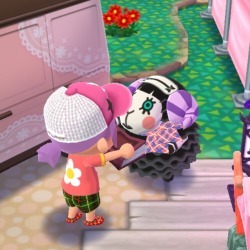
Fall book recs!
Swear to Me by Rose Madison An old classic, a book I never get tired of reading! I met Rose in college and she’s a super talented writer! She wrote this, her debut novel, back in high school and it still holds up pretty well. I love the characters, especially Tux. I don’t know why, but I have a soft spot for well meaning and adorkable dumbasses. I also have a soft spot for characters like Rina, also an adorkable dumbass who’s a sweetheart most of the time and internally screaming half the time, usually over minor inconveniences.
The book is silly, heartwarming, and action packed. I think it could make a great manga adaptation if done properly - I’d definitely read that! A fairy quick read - about 160 pages, and the pacing is quick so the only issue is that it feels too short. But a lot happens in that short time!
Portal to the Past by The Livy Aubree Company I pretty much love almost everything by Livy Aubree. I’m also loving the new show, Orla and Ozzie, which is based on this graphic novel. I was always fascinated with the history behind the classic characters Orla and Ozzie, mainly Orla. Up until recently, Orla has been put on the wayside and aside from the graphic novel, she hasn’t really had time to shine.
I love the character dynamic between Orla and Ozzie, which is the strongest part about this story. The sequels are worth looking into, but they’re not as good. There’s some strong points but overall the sequels are inconsistent in terms of plot and character development. The show, which is finishing up its first season, is definitely worth the watch!
Orla is one of my faves and I’m happy with how they handled Ozzie as his character has become a bit stagnant over the years - mainly because he’s the company’s mascot and all. What I like most is how the book and the TV show didn’t shy away from his flaws. Instead of making him a perfect goody two shoes (even when he’s clearly in the wrong - something that always annoyed me) they addressed the consequences of his actions and fleshed out his personality more so he wouldn’t be one dimensional. He was one of those characters who I always felt had a lot of potential to be interesting so I’m glad for this novel and the show.
An absolute must read! (Also I’m happy to say that my copy was signed by the show’s producer Levi Romero when I visited the island earlier this year!)
Wilde Louie by Jimmy Mathieson I enjoyed Postcards a lot so I looked into more books by him. This one is his second most popular book so I bought a copy at a second hand store when I found it. The Fairweathers is full of talented people and Jimmy has a knack for writing!
Back at Concert in the Stars, Jimmy told me he’ll send an advanced copy of his latest book a week before it comes out - which will be around the end of the year - so I’ll be doing a review on that for my winter book reads!
So the story was really interesting! I love Louie and Shep’s relationship - the found family trope has always been one of my favorites! They both may be shady con artists but underneath they’re also good and caring people. Shep tries to act tough and all but the truth is he’s a father figure who ends up unintentionally adopting a bunch of misfits. And Louie turns into the exasperated big brother who’s like 10000% done when everything goes wrong. The humor and fast paced dialogue are the book’s strongest points!
Blizzards by Chuck Wortherly A book full of poems relating to snow and blizzards. There isn’t really much to say as that’s as straightforward as it can get. They’re short, one page poems and it’s a very fast read. I love the imagery and the brevity, which is really effective.
My top favorite is Freshly Fallen Snow, which to me reads like a song. It’s quiet and a bit sad, the imagery makes you feel alone and small - but not in an entirely bad way. Sort of like a quiet melancholy that settles into you. Another favorite is Ashes and Ice, which provokes striking and powerful imagery. There’s also Snowball Fights, which is about nostalgia, and Howls, which tells the story about a wolf lost in a blizzard.
Serena and the Cracked Sapphire by Shion Yuki One of my favorite mangas! It’s basically a magical girl type story, which I enjoy. I started reading the series in middle school and it still holds up really well. There’s twenty books in the series, which takes place in a span of five years. There’s a TV adaptation in the works that is planned to be released next year so I’m looking forward to that! Based on what I’m hearing, I have high hopes for the show.
So there’s the main character Serena, who’s a reincarnation of a princess. Her weapon is a wand with a cracked sapphire and most of the time she’s pretty OP as hell. There’s her team, a band of friends known as the Jewel Shards who fight alongside her. And there’s Celestia, who’s a reincarnation of a princess from a disgraced family, and she and Serena are soulmates. Serena’s like any other typical magical girl protagonist - clumsy, badass, sweet, stubborn, and optimistic. It can be cheesy and silly and it can be dramatic and sad.
The first book in the series was and always will remain a classic. If you liked the first one, then you’ll enjoy the rest of the series. My favorite main arc is Team Crystal Shards because that’s when Serena’s team really comes together to fight the big boss. It’s basically the turning point in the series where Jewel Shards finally win the trust of the Crystal Stones and work together to fight the Shattered Diamonds. My favorite side arc is Apartment Hunting, where Serena and Crystal learn how to adult and fail epically at it.
Shockwave by Rose Madison Rose’s first sci-fi book and it was a wild ride! I’ve never really got into post apocalyptic stories so I was intrigued to see how this would play out. I tend to like slice of life stories so this was nice. In the story, the apocalypse already happened so now it’s based on the characters living normal everyday lives - well as normal as it can get.
What I love most about this book is the storytelling. It’s third person narration through three main characters and the chapters are structured a certain way. Jenna’s chapters are focused on the present. She’s an inquisitive character who’s naive and easily impressed by everything. And there’s Swan, whose chapters starts out in the middle of the event going - sort of like that freeze frame moment where the narrator is trying to explain something by going back to the beginning. She represents the past and present, the one who provides most of the backstory behind the Shadow Wars. Finally there’s Lina, who represents the future as she’s always getting ahead of herself. Her chapters are dialog heavy and fast paced. The three characters are what carries the story and it intertwines together so well!
Unlike most stories about the apocalypse, this one is quite optimistic and lighthearted. There’s a lot of funny moments in the book like poor Swan who’s unable to catch a break as she winds up falling into all her cousin’s traps. Or Jenna mistaking a giant spaceship for two pyramids because she overslept and forgot her glasses. And there’s a running gag of Lina’s inventions always going haywire and turning evil, including the notable Project Shockwave. This book could make a really interesting sitcom!
Bumblebees and Lavender by Margie Shen Another poetry book, and it’s become one of my favorites! I’ve heard about Margie Shen for a while on social media but I was a bit hesitant to check her out at first. The last few popular poets I checked out were underwhelming, to put it nicely. I liked some of them but overall they were overhyped and the books were mediocre at best.
As for this one, I was throughly impressed. What I liked about this book is that the poems had substance. They’re not super short and simple - instead they’re complex and descriptive. My favorites were the ones that told a short story like Nutmeg Tea and The Beekeeper. There’s profound and thoughtful poems like Flora with Lavenders in Her Hair and Bittersweet Chocolates. I love A Touch of Honey, which made this book easily one of my favorites. I’m definitely going to look for more books by Margie Shen and keep an eye out for her next one, due out next year!
Seventeen and Counting by Eldred Emerson This is a ridiculous book and I love it! Sure some parts area bit too silly but it’s a wild ride from start to finish. There’s a movie adaptation that’s pretty faithful to the story and just as funny. It’s about this guy, his growing collection of cats, and their everyday misadventures.
What I like the most is the names he gives his cats as he likes to go for the unusual. My favorite character is a black cat named Whiskercheeks, who goes by Whisk. His twin brother Wyn, short for Llewelyn, is considered the evil one and has the worst luck. Moneybags, aka Mon, is the baby of the family and causes a lot of mischief for the twins. There’s also Cotton Puffball, who’s always done with everything because everyone she knows is a mess. And there’s Rake Chewer, who likes to chew rakes and is a big klutz.
Overall it’s a really funny and cute book about a bunch of cats and their dorky owner.
2 notes
·
View notes
Text
Thumbnails Special Edition: National Disability Employment Awareness Month
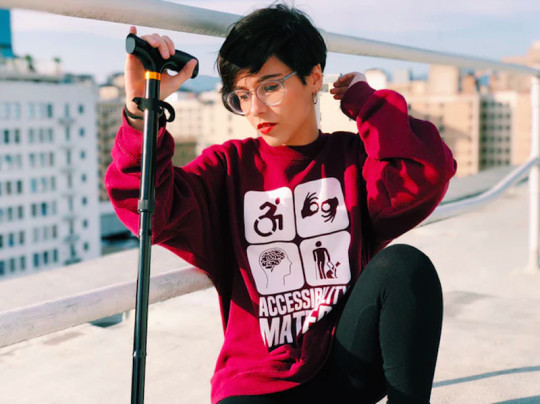
by Chaz Ebert and Matt Fagerholm
October 24, 2018 |
Print Page Tweet
Thumbnails is a roundup of brief excerpts to introduce you to articles from other websites that we found interesting and exciting. We provide links to the original sources for you to read in their entirety. This special edition of Thumbnails celebrates National Disability Employment Awareness Month, which runs through the entirety of October. Our contributor Scott Jordan Harris gave us the following article recommendations, and they provide a vital array of perspectives on the need for inclusivity in media.—Chaz Ebert
Advertisement
1.
“Growing Up, I Only Saw Half of Myself Represented On TV—That Needs to Change Now“: A personal essay from Bustle‘s Andrea Lausell about representations of Latinx people with disabilities. See also: Melissa Hung’s Huffington Post piece on “the most damaging way movies portray people with disabilities” and an article by prominent activist Vilissa Thompson on her Ramp Your Voice blog about portrayals of disability in the Black community.
“As I’ve grown into my adult years, it has made me happy to see Latinx-centered media begin to share stories of other marginalized non-disabled groups in the Latinx community (LGBTQ+, Afro-Latinx, Indigenous-Latinx). Representation is slowly improving with how these identities are viewed with TV shows like ‘One Day at a Time’ having a teenager like Elena Alvarez come out as queer and work through the emotions while seeking acceptance from her Cuban family. ‘Jane the Virgin’ highlights characters of color tackling the topic of immigration, all while making a political statement about our government and its treatment of people seeking a better life. Although these strides are giving us a diverse representation of Latinx culture and are being received fairly well by the community for being marathon-worthy, if Disabled Latinx were to be included in the narrative, would the public receive it as well? I’ve noticed that non-Latinx communities are just starting to embrace disabled narratives on their TV screens. Often, disabled representation in Hollywood, like in the novel-turned-film ‘Me Before You’ starring Emilia Clarke and Sam Claflin, portrays the harmful stereotype of disability being a burden. However, shows like ABC’s sitcom ‘Speechless’ have been a game changers for showing a disabled lead character happy with their life. But that’s just starting to happen now. Growing up, I learned to be ashamed of who I am because there were so few positive disabled Latinx representations on TV. Hearing from my Latinx community that disabled Latinx don’t exist — or that there’s ‘no need’ for us to be shown — told me that my place as a Disabled Latina within Latinidad wasn’t welcomed.”
2.
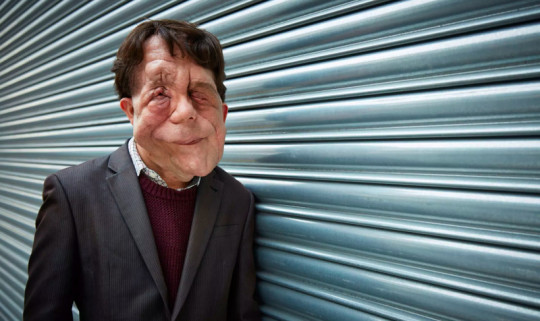
“Why are disabled actors ignored when it comes to roles like the Elephant Man?“: Asks The Guardian‘s Frances Ryan. See also: Ryan’s piece on the controversy regarding Netflix’s “Afflicted” series and Julie Rehmeyer’s Los Angeles Times essay on how Netflix is “televising prejudice against the chronically ill.”
“The BBC has been widely criticised over its decision to cast a non-disabled person in its remake of ‘The Elephant Man.’ The role of Joseph Merrick – who had severe physical deformities – will be played by the Stranger Things actor Charlie Heaton. Notably, actor Adam Pearson – who has neurofibromatosis type 1, a condition which was once thought to affect Merrick – has said he wasn’t even given the opportunity to audition. As Pearson told LBC, it’s part of a culture of exclusion for disabled actors. ‘It’s a systemic problem, not only in the BBC but industry-wide.’ From Dustin Hoffman in Rain Man to Eddie Redmayne in ‘The Theory of Everything,’ it’s routine for non-disabled actors to play disabled characters, often gaining critical acclaim in the process. At best, it takes work and exposure from talented disabled actors and further adds to an arts and culture that pushes disability representation – much like race, sex and class – to the sidelines. At worst, it sees non-disabled actors mimic the characteristics of a minority group without any involvement from the community it depicts.”
3.
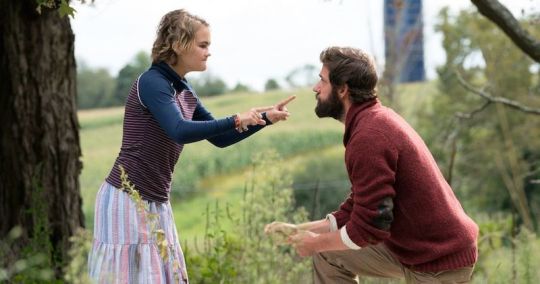
“‘A Quiet Place’ proves there’s no excuse for using non-disabled actors to play disabled characters“: According to The Independent‘s James Moore. See also: Variety‘s Joe Otterson reports that Maysoon Zayid, who has cerebral palsy, will write and star in “an autobiographical comedy series in development at ABC,” while CNN‘s Wayne Drash analyzes the outrage over the portrayal of epilepsy on Netflix’s “Seizure Boy.”
“The movie is set in a post-apocalyptic world haunted by blind monsters that zero in on sound with the aid of supersensitive hearing. Silence is thus a matter of survival. Because her family uses American Sign Language (ASL) they have an advantage: they can talk to each other in a world where speaking can get you killed. The script could have fallen down at this point by having Simmonds perform a functional role without much else to do other than move the plot along for the other actors, including A-lister Emily Blunt, to shine. But it has more ambition than that. Simmonds’ Regan Abbott is a fully formed character; a stroppy teen, chafing against her parents’ overprotectiveness and haunted by what she sees as her role in her little brother’s death. It’s not just her deafness that is central to the plot: she is. She’s neither an afterthought, nor is she an inspiration, which is another trap films involving disability fall into. She’s a person. She’s also the best thing about a film that is full of good things. Director John Krasinski, who pushed to cast her, has further revealed that she changed one of the signed parts of the scripts in an important way that makes it better. In fact she elevates the whole project. As Kamran Mallick, the chief executive of Disability Rights UK, says, she brings ‘an extra dimension to the role which a hearing actor would not have been able to do.’”
Advertisement
4.

“Toppling Structures of Inequality in the Documentary Field“: A great article published at IDA by Nicole Opper.
“New Day Films, a distribution co-op created by and for independent documentary filmmakers in 1971, has recently been grappling with what it means to be truly representative of the broad spectrum of filmmakers that exists, including filmmakers of color, working-class filmmakers, trans and gender non-binary filmmakers and those with disabilities—groups that have historically been underrepresented or poorly portrayed in the industry. At our Annual Meeting in upstate New York this past June, a panel was convened to discuss the findings of an Equity and Representation task force, and to open up the conversation to all member-owners of the co-op. ‘Very often in the documentary space, I’m the only person of color,’ remarked Michael Premo. Premo is the director of ‘Water Warriors,’ the story of a community’s successful fight to protect their water from the oil and natural gas industry. ‘This is also sort of dually equated with poverty, which is equally as racist as being the token black guy.’ Cheryl Green, the director of ‘Who Am I To Stop It’—a documentary about individuals with traumatic brain injuries—shared her perspective as a filmmaker with acquired disabilities herself: ‘There is no one disability community. What is a film about disability? What is a person with a disability? We’re not a monolith. There’s not one way to talk about it; there’s not one way to present it. The main way disability is represented is non-disabled people parachuting in and filming a medical story. Usually it’s one that starts off as ‘That’s gross or scary or painful! Phew! They got better.’”
5.
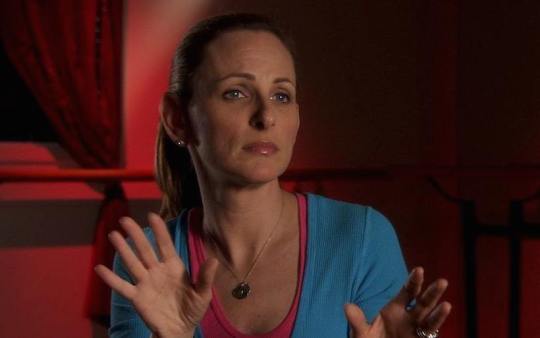
“CinemAbility: The Art of Inclusion“: Scott Jordan Harris recommends Jenni Gold’s documentary in his RogerEbert.com review.
“‘CinemAbility’ is the most entertaining and comprehensive history of disability in American film and television ever made. In that sense it is the onscreen equivalent of Matthew F. Norden’s classic book Cinema Of Isolation: A History Of Physical Disability In The Movies, and Norden is prominent in the film’s opening scenes, explaining the early and generally disheartening history of Hollywood’s ideas about disability. Due prominence is given to Lon Chaney, an able-bodied actor notorious in the disabled community for making a career out of grotesque and exploitative parodies of disability. He often did so in partnership with director Tod Browning, who in 1932 made ‘Freaks’ with a cast of disabled actors. Norden uses ‘Freaks’ to make an important point about audience attitudes to disability then that is still relevant now: ‘Audiences couldn’t handle [‘Freaks’]. People supposedly went screaming down the aisles because what they were seeing on the screen were not able-bodied actors wearing tricky makeup … They were seeing authentic disabled people.’ But ‘CinemaAbility’ never feels like a lecture. It is structured like a conversation, with contributions from an array of industry heavyweights, including Marlee Matlin, Ben Affleck, Geena Davis, William H. Macy, Ben Lewin, Peter Bogdanovich and R.J. Mitte.”
Image of the Day
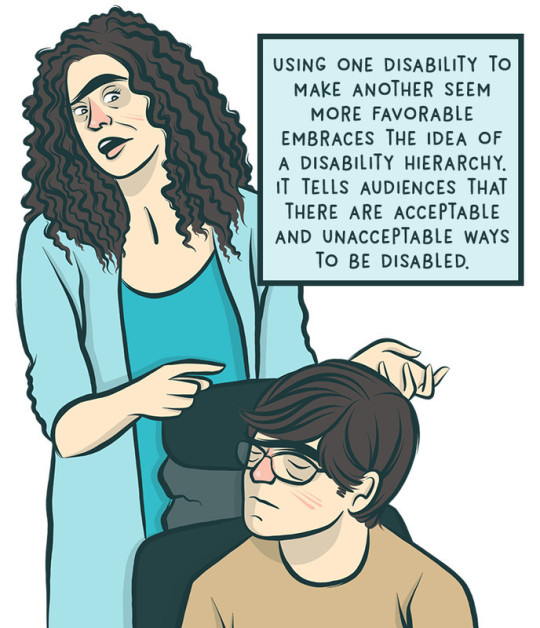
TV Guide‘s Alyssa Andrews explains “how TV is still failing people with disabilities,” in graphic novel form.
Video of the Day
[embedded content]
The official trailer for Jenni Gold’s documentary, “CinemAbility: The Art of Inclusion,” reviewed above by Scott Jordan Harris.
Previous Article: Thumbnails 9/28/18
Please enable JavaScript to view the comments powered by Disqus.
comments powered by
Source: https://bloghyped.com/thumbnails-special-edition-national-disability-employment-awareness-month/
0 notes
Text
--------------------------------------------------------------
This is such an interesting post because I have read previous works from Tatsuya Endo and the plots are always thriving to dark/tragic but with SpyxFamily he goes for a sitcom type and then blows popularity but the subplot is still there.
The war is already bad enough but Yor's part is the most interesting to me because she was, as OP said indoctrinated by Garden, she was only a child with a brother in need and was taken advantage of to be honed to be a perfect assassin, so well that she things she's not good at ANYTHING but killing, all her worth is from "cleansing the world", even saying that the only thing she had is a superhuman strength and that's why she is so insecure, but still so eager to justice and protect others when that sense of justice is mostly what Garten has tell her it is, yet she's still genuinely sweet and kind to the point of hold herself to solve everything by blood.
Also the fact that she was introduced as a "so out of it" person that even her co-workers pick her to made fun of her.
Loid's words are Yor's support system as a whole new discovering of herself and the feelings she gets to experience because she had never had any life outside her hitman job and her brother.
Imaging if Garden tells her she has to get rid of Twilight because he's "evil" a person who needs to be cleansed and discovering that evil person is none other than her kind husband while having a completed breakdown thinking if Loid has fed her lies all along and in reality she has no more value as a person than killing.
In a a sense that's where Anya enters the picture because she knows the real them from the mere beginning and has been encouraged them that they are cool and worthy just the way they are.
Loid's dilemma is different but that's for another post.
Every comedy stems from fear. Part 1
After the last chapter of the Spy x Family manga, a rare stir started the fandom. Where it is suggested that Eno strategically uses the comedy and love of a false family as a kind of convenient illusion to attract the audience, as a deceiver attracts a naive to fall into his trap.
Are we really so blind not to see everything that history throws at us? Or is comedy so hilarious that it makes us forget the tragedy that happens in the context of history?
From the beginning of the story we are given a brief introduction to the universe where we meet: After a war between two neighboring countries, the "apparent" peace came, however there are agents of evil working from the shadow with the desire that the war continue for their personal benefits.
This is the engine that leads Twilight, our protagonist to be assigned by WISE (the agency) to have a family.
From then on, we can see that each person is a byproduct of war in one way or another. They are the result of side effects:
Twilight lost his family, his friends, he became filled with hatred for anyone who came from the other side. Then, he understood by evil, he suffered a second loss to understand that "war and ignorance" are sins that drag many people. Twilight has had a lot of "life experience." But this has only been lived under the "I'm a spy" filter. The trauma that carries on his shoulders, added to a job whose success is achieved "not involving his emotions" have made all his bonds a farce. Twilight doesn't really know it's "family love," or "being genuinely in love." He only understands these emotions as an easy vehicle to manipulate others. (Since that's what a spy does) And they've made him unable to recognize his (obvious) feelings to his family. Therefore, in unknown situations he feels so confused and trapped. Since in such circumstances, being a spy is not "the solution." And that's when his real "me" usually comes momentarily. It's too late to notice, though.
Yor, for his part, lost his parents (In causes we still do not know, but we assume it is because of the war). The only thing left with her was her younger brother, maybe she ran with more luck in this regard. But he had to sacrifice himself completely in order to give him a happy future in the midst of a world full of dirt. We don't know how it happened yet, but Yor makes it clear to us the vulnerable situation she was in. The reason I took that job was to "keep her brother," to see that he rewarded her with enough money to meet their needs and to give little gifts of happiness to Yuri in her childhood (such as books or sweets). That is why the real reason for being a murderer was to "protect the peaceful life of your brother." Yor clearly received indoctrination from "garden" and his philosophy of work. "Cleansing the world," though, we do not yet know how true this is and what its true ends are. The way his first instinct is to "murder," and his social ineptitude are clear signs that Yor could never experience a normal life of a girl or teenager, be able to have fun and think about developing in other aspects of life. Clearly, she is very corrupted despite her noble and sweet nature.
Anya is the product of an experiment. Surely caused by war, perhaps in order to create weapons (Background history of which we do not know much yet). A child in search of love from a family. Therefore, she is so affected by the mere possibility that her parents will distance themselves or that the mission will end and Twilight will end up abandoning them. And she must experience abandonment again.
Despite having three such tragic pasts, the product of unfortunate circumstances. The series shows us that these three characters can have salvation. The love of a family "is not perfect," often you cannot premeditate, or control the actions around you, your family may be strange and peculiar. But love can accept us, with our flaws and encourage us to be better.
The union of Twilight, Yor and Anya is so perfect because the three of them accept each other (hiding their identities, of course). But at the same time they can see their virtues and their flaws, they can be themselves.
Ania knows her parents' profession: She knows how cold, calculating and hard her father can be with his high expectations in his missions. Thus, as Yor's crude mind can see with horrendous fantasies. But she loves them and accepts them like that. Because she knows that apart from that, her two parents are amazing, they are people full of love, willing to protect her and guide her along the way always.
In the same way as Yor and Twilight are an incredible couple. Both support, encourage, appreciate, recognize their strengths and understand their weaknesses. It doesn't matter if they are the best in their areas, they always manifest their insecurities in one way or another, and the other is always to listen to it and to say "you make it unbelievable, in your own way."
Unknowingly both have the same purpose, and the same desires. A world where others do not have to suffer what they suffered. And they are willing to fight for it
180 notes
·
View notes
Text
Thumbnails Special Edition: National Disability Employment Awareness Month
Thumbnails is a roundup of brief excerpts to introduce you to articles from other websites that we found interesting and exciting. We provide links to the original sources for you to read in their entirety. This special edition of Thumbnails celebrates National Disability Employment Awareness Month, which runs through the entirety of October. Our contributor Scott Jordan Harris gave us the following article recommendations, and they provide a vital array of perspectives on the need for inclusivity in media.—Chaz Ebert
1.
"Growing Up, I Only Saw Half of Myself Represented On TV—That Needs to Change Now": A personal essay from Bustle's Andrea Lausell about representations of Latinx people with disabilities. See also: Melissa Hung's Huffington Post piece on "the most damaging way movies portray people with disabilities" and an article by prominent activist Vilissa Thompson on her Ramp Your Voice blog about portrayals of disability in the Black community.
“As I’ve grown into my adult years, it has made me happy to see Latinx-centered media begin to share stories of other marginalized non-disabled groups in the Latinx community (LGBTQ+, Afro-Latinx, Indigenous-Latinx). Representation is slowly improving with how these identities are viewed with TV shows like ‘One Day at a Time’ having a teenager like Elena Alvarez come out as queer and work through the emotions while seeking acceptance from her Cuban family. ‘Jane the Virgin’ highlights characters of color tackling the topic of immigration, all while making a political statement about our government and its treatment of people seeking a better life. Although these strides are giving us a diverse representation of Latinx culture and are being received fairly well by the community for being marathon-worthy, if Disabled Latinx were to be included in the narrative, would the public receive it as well? I’ve noticed that non-Latinx communities are just starting to embrace disabled narratives on their TV screens. Often, disabled representation in Hollywood, like in the novel-turned-film ‘Me Before You’ starring Emilia Clarke and Sam Claflin, portrays the harmful stereotype of disability being a burden. However, shows like ABC’s sitcom ‘Speechless’ have been a game changers for showing a disabled lead character happy with their life. But that’s just starting to happen now. Growing up, I learned to be ashamed of who I am because there were so few positive disabled Latinx representations on TV. Hearing from my Latinx community that disabled Latinx don’t exist — or that there’s ‘no need’ for us to be shown — told me that my place as a Disabled Latina within Latinidad wasn’t welcomed.”
2.
"Why are disabled actors ignored when it comes to roles like the Elephant Man?": Asks The Guardian's Frances Ryan. See also: Ryan's piece on the controversy regarding Netflix's "Afflicted" series and Julie Rehmeyer's Los Angeles Times essay on how Netflix is "televising prejudice against the chronically ill."
“The BBC has been widely criticised over its decision to cast a non-disabled person in its remake of ‘The Elephant Man.’ The role of Joseph Merrick – who had severe physical deformities – will be played by the Stranger Things actor Charlie Heaton. Notably, actor Adam Pearson – who has neurofibromatosis type 1, a condition which was once thought to affect Merrick – has said he wasn’t even given the opportunity to audition. As Pearson told LBC, it’s part of a culture of exclusion for disabled actors. ‘It’s a systemic problem, not only in the BBC but industry-wide.’ From Dustin Hoffman in Rain Man to Eddie Redmayne in ‘The Theory of Everything,’ it’s routine for non-disabled actors to play disabled characters, often gaining critical acclaim in the process. At best, it takes work and exposure from talented disabled actors and further adds to an arts and culture that pushes disability representation – much like race, sex and class – to the sidelines. At worst, it sees non-disabled actors mimic the characteristics of a minority group without any involvement from the community it depicts.”
3.
"'A Quiet Place' proves there's no excuse for using non-disabled actors to play disabled characters": According to The Independent's James Moore. See also: Variety's Joe Otterson reports that Maysoon Zayid, who has cerebral palsy, will write and star in "an autobiographical comedy series in development at ABC," while CNN's Wayne Drash analyzes the outrage over the portrayal of epilepsy on Netflix's "Seizure Boy."
“The movie is set in a post-apocalyptic world haunted by blind monsters that zero in on sound with the aid of supersensitive hearing. Silence is thus a matter of survival. Because her family uses American Sign Language (ASL) they have an advantage: they can talk to each other in a world where speaking can get you killed. The script could have fallen down at this point by having Simmonds perform a functional role without much else to do other than move the plot along for the other actors, including A-lister Emily Blunt, to shine. But it has more ambition than that. Simmonds’ Regan Abbott is a fully formed character; a stroppy teen, chafing against her parents’ overprotectiveness and haunted by what she sees as her role in her little brother’s death. It’s not just her deafness that is central to the plot: she is. She’s neither an afterthought, nor is she an inspiration, which is another trap films involving disability fall into. She’s a person. She’s also the best thing about a film that is full of good things. Director John Krasinski, who pushed to cast her, has further revealed that she changed one of the signed parts of the scripts in an important way that makes it better. In fact she elevates the whole project. As Kamran Mallick, the chief executive of Disability Rights UK, says, she brings ‘an extra dimension to the role which a hearing actor would not have been able to do.’”
4.
"Toppling Structures of Inequality in the Documentary Field": A great article published at IDA by Nicole Opper.
“New Day Films, a distribution co-op created by and for independent documentary filmmakers in 1971, has recently been grappling with what it means to be truly representative of the broad spectrum of filmmakers that exists, including filmmakers of color, working-class filmmakers, trans and gender non-binary filmmakers and those with disabilities—groups that have historically been underrepresented or poorly portrayed in the industry. At our Annual Meeting in upstate New York this past June, a panel was convened to discuss the findings of an Equity and Representation task force, and to open up the conversation to all member-owners of the co-op. ‘Very often in the documentary space, I'm the only person of color,’ remarked Michael Premo. Premo is the director of ‘Water Warriors,’ the story of a community's successful fight to protect their water from the oil and natural gas industry. ‘This is also sort of dually equated with poverty, which is equally as racist as being the token black guy.’ Cheryl Green, the director of ‘Who Am I To Stop It’—a documentary about individuals with traumatic brain injuries—shared her perspective as a filmmaker with acquired disabilities herself: ‘There is no one disability community. What is a film about disability? What is a person with a disability? We're not a monolith. There's not one way to talk about it; there's not one way to present it. The main way disability is represented is non-disabled people parachuting in and filming a medical story. Usually it’s one that starts off as ‘That's gross or scary or painful! Phew! They got better.’”
5.
"CinemAbility: The Art of Inclusion": Scott Jordan Harris recommends Jenni Gold's documentary in his RogerEbert.com review.
“‘CinemAbility’ is the most entertaining and comprehensive history of disability in American film and television ever made. In that sense it is the onscreen equivalent of Matthew F. Norden's classic book Cinema Of Isolation: A History Of Physical Disability In The Movies, and Norden is prominent in the film's opening scenes, explaining the early and generally disheartening history of Hollywood's ideas about disability. Due prominence is given to Lon Chaney, an able-bodied actor notorious in the disabled community for making a career out of grotesque and exploitative parodies of disability. He often did so in partnership with director Tod Browning, who in 1932 made ‘Freaks’ with a cast of disabled actors. Norden uses ‘Freaks’ to make an important point about audience attitudes to disability then that is still relevant now: ‘Audiences couldn't handle [‘Freaks’]. People supposedly went screaming down the aisles because what they were seeing on the screen were not able-bodied actors wearing tricky makeup ... They were seeing authentic disabled people.’ But ‘CinemaAbility’ never feels like a lecture. It is structured like a conversation, with contributions from an array of industry heavyweights, including Marlee Matlin, Ben Affleck, Geena Davis, William H. Macy, Ben Lewin, Peter Bogdanovich and R.J. Mitte.”
Image of the Day
TV Guide's Alyssa Andrews explains "how TV is still failing people with disabilities," in graphic novel form.
Video of the Day
youtube
The official trailer for Jenni Gold's documentary, "CinemAbility: The Art of Inclusion," reviewed above by Scott Jordan Harris.
from All Content https://ift.tt/2OOlC4P
0 notes
Text
New Post has been published on WilliamBruceWest.com
New Post has been published on http://www.williambrucewest.com/2017/06/02/west-week-ever-pop-culture-review-6217/
West Week Ever: Pop Culture In Review - 6/2/17
Whoo boy! This is gonna be a controversial one this week, but I’ve got some stuff to get off my chest.
First up, there was controversy surrounding the new Wonder Woman film (in theaters now!). Theater chain Alamo Drafthouse announced women-only screenings for the film, where proceeds would go to women’s charities, including Planned Parenthood. Originally planned to be 5 screenings at the Austin and Brooklyn locations, tickets sold out instantly and more screenings were added. According to Alamo, the screenings were meant to be a celebration of “Girl Power”, and were only open to those who identified as women. Now, this isn’t the first time Alamo has done special screenings, as they have screenings for active military members, as well as for children with special sensory needs. I’ve also heard other explanations, like the screenings give women a safe space to watch the film without having it mansplained to them the entire time. But, of course, the social media shitstorm started. A lot of folks who might be considered Men’s Rights Activists felt that this was discrimination, and that they should retaliate with all-male screenings of the next Star Wars movie.
As Twitter was dead over the holiday weekend, I tweeted that the backlash to the screening was stupid, but the screening itself is also kinda stupid. Now, hear me out: I see both sides of the issue here. Alamo wanted to make a fun exclusive event to celebrate the release of a movie starring a female superhero. That doesn’t happen every day, so it was a cause to celebrate. I’m not “butthurt” over the idea. That said, Alamo had to know they’d get this kind of reaction, as this kind of thing is somewhat of a slippery slope. “How is it a slippery slope, Will?” So glad you asked! Let’s, for a moment, propose a different kind of screening. Let’s say it was a Black Only screening of Get Out. I mean, it had a similar pedigree in that it was a Black horror/suspense film from a Black director – something that also doesn’t happen every day. You’d better believe people would have a problem with that! Sure, it could be spun as a celebration “for the culture”, meant to foster community and whatnot, but White people would shit ALL the bricks! So, as this has been great publicity for both Wonder Woman and Alamo Drafthouse, they knew exactly what they were doing when they set out to do this. In the long run, this isn’t gonna hurt Alamo or Wonder Woman one bit, but let’s not act like this was some kind of altruistic celebration of sisterhood. This was Shrewd Marketing 101.
See? I toldja this would be a controversial one, and I’m just getting started!
Let’s visit the world where Hollywood and politics intersect. You see, comedienne Kathy Griffin posted a photo of herself holding what was meant to be Donald Trump’s severed head. AND PEOPLE LOST THEIR MINDS! Trump, himself, even took time off from golfing and nudging his way to the front of photo ops to tweet about it, saying that it had affected his 11 year-old son, Barron, who apparently thought the photo was real. The backlash was strong against Griffin, who apologized hours later, but still ending up losing her Squatty Potty endorsement, as well as her CNN New Year’s Eve gig with Anderson Cooper. A lot of people seem to be in agreement of the backlash, but I’m gonna take a different approach: I don’t think the photo was that bad.
There are so many things to unpack here, so bear with me as I try to navigate through all of it. Societies have a history of burning politicians in effigy as a form of protest so, while extreme, how is this any different? Had she actually decapitated the man, and was brandishing his severed head on social media as some sort of trophy, that would’ve been too far. Like it or not, this was “art”, and you don’t really get to judge art. It can make you uncomfortable but at least it triggered some sort of opinion or emotion, which means it did its job.
I also feel like this is a situation where folks are more upset by the messenger than the message. Kathy Griffin isn’t taken seriously. We’ve put her in this box along with Andy Dick and several other unpredictable, slightly unstable comedians who at one time did a stint on an NBC sitcom. We don’t expect anything “deep” from her, because we’ve already written her off. She knows this, as she’s in on the joke. I mean, her reality series was called My Life On The D-List, so she knows she’s not a top-tier celebrity. Still, she has a team behind her, as everyone in Hollywood does, and they all decided that this was something she was going to do. Maybe she felt it’d just blow over because of her lessened celebrity status, or maybe it’s doing just what she thought it would. A friend and I were talking about it the other night, and he’s the one who made me realize it was the messenger we were blaming here. After all, if Samantha Bee had done this, liberals would be creaming their jeans about how daring and smart it was. Why? Because that’s what people expect of her. Griffin made the simple mistake of veering out of her lane, and that’s how we got to where we are now.
Now, let’s look at the photographer, Tyler Shields, whose work tends to push boundaries like this. For him, this was just another Tuesday photoshoot, and this isn’t the first time that Griffin has worked with him. I mean, just look at some of his work above. He likes weird shit, but again, it’s art and we don’t really get to police it.
Meanwhile, there’s the whole thing about Barron thinking the photo was real. That poor, poor boy. To quote Hank Hill, “That boy ain’t right”, and the family either refuses to acknowledge it or is dealing with it in secret. On the one hand, I guess I have to commend the fact that we’ve “grown” to the point of saying “Kids are off limits”, but I find it convenient that we’re adopting that stance now. Where was that when comedians were calling little Chelsea Clinton a “dog” every chance they got? Where was that when Sasha and Malia had to see the stuff folks said about them and their family? It’s a shame that Barron doesn’t know the difference between a photo and reality but, as one Tweeter put it, it wouldn’t be an issue if Donald actually lived with his son. But I digress. I think this whole thing has been blown way out of proportion to dominate the news cycle. After all, last weekend it was looking like Jared Kushner was in the hot seat, and then next thing you know, it’s Kathy Griffin this, and covfefe that.
Where to next? Oh yeah, remember Mary Kay Letourneau? She was one of the first stories of teachers sleeping with their students to hit the news. Back in the late 90s, Letourneau fell in love with her student, 12 year old Vili Fualaau, and ended up getting impregnate by him. She was convicted of child rape, served 3 months in jail, and THEN got caught having sex with Fualaau in her car just two weeks after her release. And she got pregnant again. She served 6 years that time, but married Fualaau when she got out. And they lived happily ever after…until May 9th of this year, when Fualaau filed for legal separation from Letourneau. Now 33, perhaps Letourneau simply got too old for him at 55. But the plot thickens! Yesterday, that bastion of journalistic integrity, The New York Post, reported that the separation was really just something of a scam. You see, Fualaau wants to get a license to sell pot, but he knows they’ll do a background check before granting it to him, and it wouldn’t look good to be married to a registered sex offender. He claims they’re still in love and this is just a business arrangement. So, while he awaits his pot license, he’s working as a DJ in Washington state. Too bad she couldn’t fuck some ambition into him all those years ago! Fun fact: one of Letourneau’s brothers is a foreign policy adviser to the president. He’s clearly been doing a heck of a job lately!
Still here? OK, then let’s talk about some pop culture stuff. Someone at NBC must’ve read my Upfronts post, as they just announced changes that perfectly mirror my suggestions. This Is Us will no longer be moving to Thursday, and will stay put on Tuesday nights. Meanwhile, the comedies planned for Tuesday, Superstore and The Good Place, are moving to Thursday to join Will & Grace and Great News for a 2-hour comedy block. This is how it alway should’ve been, and I’m not quite sure what’s going on at NBC. From the cancellation/uncancellation of Timeless to this new schedule scramble, it makes you wonder who’s at the wheel over there. Still, I think these are smart moves, so hopefully they’ll work out in the long run.
The hardest working man in Hollywood, Ryan Seacrest, is developing a new show. Best.Cover.Ever. will air on YouTube and will feature people singing cover songs, vying for the chance to sing a duet with the original artist of the song they sang. Hosted by Ludacris, the show will feature Demi Lovato, Jason Derulo, and Backstreet Boys to start out. Contestants are asked to upload videos of covers of “Trumpets”, “Confident”, and “As Long As You Love Me”. The artists will each choose two finalists, who will be the contestants actually featured on the show. The winner gets to duet with the original artist for an exclusive YouTube performance. It’s an interesting concept, and it requires a partnership with a streaming service to work, but I’m still not sure it’s going to be successful. I’m also surprised that it’s not on YouTube Red, where they can charge for it. After all, nobody really talks about the offerings on YouTube Red, but this is the kind of thing that could get folks talking and maybe boost subscriptions. I’m a sucker for “As Long As You Love Me”, so I’ll be keeping tabs on this just to see how it fares.
Major news in the world of pop music this morning, as will.i.am confirmed that Fergie has left the Black Eyed Peas to focus on her solo career. The news isn’t exactly a surprise, as last week it was announced that she was leaving the band’s label, Interscope, to start her own label, Duchess Music, over at BMG. It’s still a pretty big deal, though, as she’s been with the band for the past 15 years. Still, I feel like their time has come and gone. They showed up, gave the world a suitable soundtrack replacement for Jock Jams, and left their mark. However, will.i.am says they’re still together, recording new music to celebrate their 20th anniversary as a band. To be honest, I thought they were gonna be done in 2008, when they released The E.N.D., but it proved successful enough, with the hits “Boom Boom Pow” and “I Gotta Feeling”, that they just kept trucking along. Now there are rumors swirling that Nicole Scherzinger might replace Fergie in the group, which would be her third time in a group, after Eden’s Crush and The Pussycat Dolls. I swear, Scherzinger must have a tail or something, because there’s some sort of defect that’s preventing a label from being able to package her as a solo act. Always a bridesmaid…Anyway, let’s pour one out for The Duchess and her tenure with Your Grandma’s Favorite Rap Group.
Netflix founder and CEO Reed Hastings recently said that he felt Netflix should be canceling more shows. In his mind, they have too many hits, which results in creators taking fewer chances and not “swinging for the fences”. The successful shows are basically taking real estate from potential new hits. Now, it being the internet, there’s no “real estate”, per se, but it’s still marketing dollars, bandwidth, etc. It used to be that you could count on a Netflix series getting at least 2 seasons, but they just killed that with the cancellation of The Get Down after its first season. Yesterday, they followed the trend and canceled the sci fi series Sense8 after its second season just debuted last month. If the axe is swinging, I’m worried about the shows that aren’t generating a ton of buzz right now, like F is for Family and the adaptation of Dear White People. Kind of a weird problem to have, though: too much success might be making them complacent. It’ll be interesting to see how this affects the Marvel shows, as well as the Netflix perennials like House of Cards and Orange is the New Black.
There was a scary moment last weekend at Phoenix Comicon, when police arrested a man who reportedly had three handguns, a shotgun, knives, pepper spray, and throwing stars, and had a reminder on his phone that said “Kill JDF.” That’s right, folks – his plan was to kill the Greatest Power Ranger of All Time, Jason David Frank, as well as some police officers. Sidebar: can you imagine being so absentminded that you need to set a phone reminder to make sure you remember to murder your target?! Anyway, the reason police were able to capture 31 year old Mathew Sterling was because he had told his plan to some chick on social media, who then tipped off the police. Anyway, JDF continued with the convention as if nothing had happened, claiming that he wasn’t going to let fear govern his life. Meanwhile, the convention cracked down on prop weapons and banned them from the show. In fact, if you were getting your Saba or Dragon Dagger swords signed by JDF that weekend, he was posting on social media that you would have to leave them in their boxes. This has caused other conventions to look at their own weapons policies, so look for some changes coming up on the con circuit.
Song of the Week
youtube
This week, I give you “You Look Good”, but Lady Antebellum. This is just such a funky song, and could’ve been a contender for Song of the Summer had they waited a bit longer to release it. Anyway, it’s like the 2017 offspring of Santana and Rob Thomas’s “Smooth”. I really dig it, and I think you will, too.
Things You Might Have Missed This Week
Hailee Steinfeld is in talks to star in the Transformers spinoff, Bumblebee
After 14 years off the air, MTV is bringing back the MTV Beach House this summer
WGN America has canceled slavery drama Underground after 2 seasons
There are reports that Steven Spielberg is gearing up for an Animaniacs reboot
Fresh off the recently canceled Powerless, Vanessa Hudgens was announced as a judge on the upcoming season of So You Think You Can Dance
Scott Pelley is out as the anchor of CBS Evening News, and will return to 60 Minutes in a full-time capacity
A Sin City TV series is in the works
Universal is reportedly interested in Dwayne “The Rock” Johnson for the role of The Wolfman in their Dark Universe franchise
Speaking of Dark Universe, I called it last week: Warner Bros may sue Universal over the Dark Universe title. According to official documents, however, it appears Universal may have had the name first.
Charlie Heaton, of Stranger Things fame, is reportedly up for the role of Cannonball in the X-Men spinoff, New Mutants – which is now supposedly going to be a straight horror movie. Um, OK…
Speaking of New Mutants, Fox continues to mine Netflix shows, as 13 Reasons Why‘s Henry Zaga has been cast as Sunspot
Ben Stiller and Christine Taylor have split after 18 years together
The Ludacris-hosted Fear Factor reboot premiered on MTV this week
Tiger Woods was arrested for a DUI, even though he had no alcohol in his system and was found passed out in his car. He says it was the result of mixing prescription drugs, but the whole thing sound fishy
Sharknado 5: Global Swarming will premiere August 6th on SyFy, guest starring Charo, Fabio, Tony Hawk, and Chris Kattan. This thing is one Ted Lange appearance away from becoming a Love Boat reboot
Thanks to an article on Slate, we now know to pronounce the “T” in Gal Gadot’s name.
I had absolutely no desire to see Wonder Woman. While she was my favorite part of of Dawn of Justice, I just wasn’t jazzed about the idea of her starring in a World War I period piece. I mean, we already got that movie, and it was called Captain America: The First Avenger (before you history buffs come out of the woodworks, I know that movie was set in WWII: War Harder). I wasn’t looking forward to DC’s lackluster attempt at a retread of that. So, imagine my surprise when I found myself in the theater on opening night. And then imagine my surprise when the movie ended, and I realized that I LOVED it!
It might be premature to say that Warner Bros has finally righted the DCEU ship, but Wonder Woman is definitely a step in the right direction. My buddy Chad predicted that it would be the new gold standard in comic book movies, and while I don’t think it quite achieves that, it’s definitely the gold standard for the DC Universe. It’s one of the rare comic book movies where I left and didn’t really have any issues with plot holes. It was such a joy to watch, thanks to the acting of Gal Gadot. First of all, she’s so goddamn beautiful that it should be illegal for the camera to be trained on her for prolonged periods of time. Seriously, I thought I was gonna have a seizure like those kids did from that Pokémon episode back in ’99. She does such a great job playing up Wonder Woman’s sweet naiveté about “Man’s World”, but is also a commanding presence during the battles. It’s funny how when she was cast, we were all saying “She’s too small to be Wonder Woman”, but watching her onscreen, all those doubts slip away.
Now, as much as I loved it, it’s not a perfect film. It deftly straddles the line between “suspension of disbelief” and just plain hokey, but it sort of feels like a 90s comic book movie in that way. And while Patty Jenkins may have directed it, Zack Snyder’s fingerprints are ALL OVER IT (as he co-wrote it with Allan Heinberg). I swear, I think about 60% of it was pure green screen, as I sat there thinking to myself, “This is on a soundstage. That is on a soundstage. Oh, that’s definitely a sound stage.” At points (especially during the final act), it shifts into that “Snydervision” that most of the DCEU movies are in, where it just becomes a copper-tinted music video.
Plus, I’m still not sure about the shared universe nature of the DCEU. While Marvel has almost flawlessly built their world over the course of many films, it just feels so forced with the DC movies. Whereas the MCU feels organic, the DCEU feels copycat. The framing device of the movie is meant to sort of further that idea of a shared universe, but I’m not sure it works. To be honest, I’d probably enjoy it more if I knew nothing about Dawn of Justice or the fact that she’ll pop up in Justice League later this year. She’s strong enough to stand on her own, and the rest of the disappointing DCEU almost taints her.
All that said, it’s really a great cinematic debut for the character, and young girls finally have their own big screen hero. Not to give too much away, but as the film starts, Diana is a wide-eyed little girl, and I could see so much of the audience connecting with that. I thought of my own daughter, and the fact the she now has her own hero. I think that will mean a lot to folks. As far as I’m concerned, scrap Justice League and the rest of the solo films on DC’s slate, and rush Wonder Woman 2 into production stat! For these reasons, Wonder Woman had the West Week Ever.
#Boybands#Comics#DC#Marvel#Movies#Music#Politics#Pop#Power Rangers#Race#Random Rants#Social Media#Star Wars#Television#West Week Ever#X-Men
0 notes